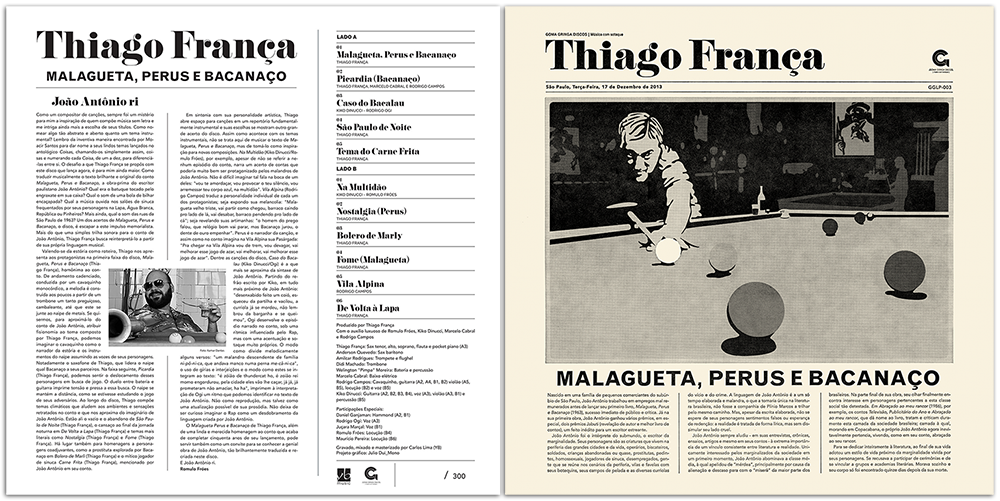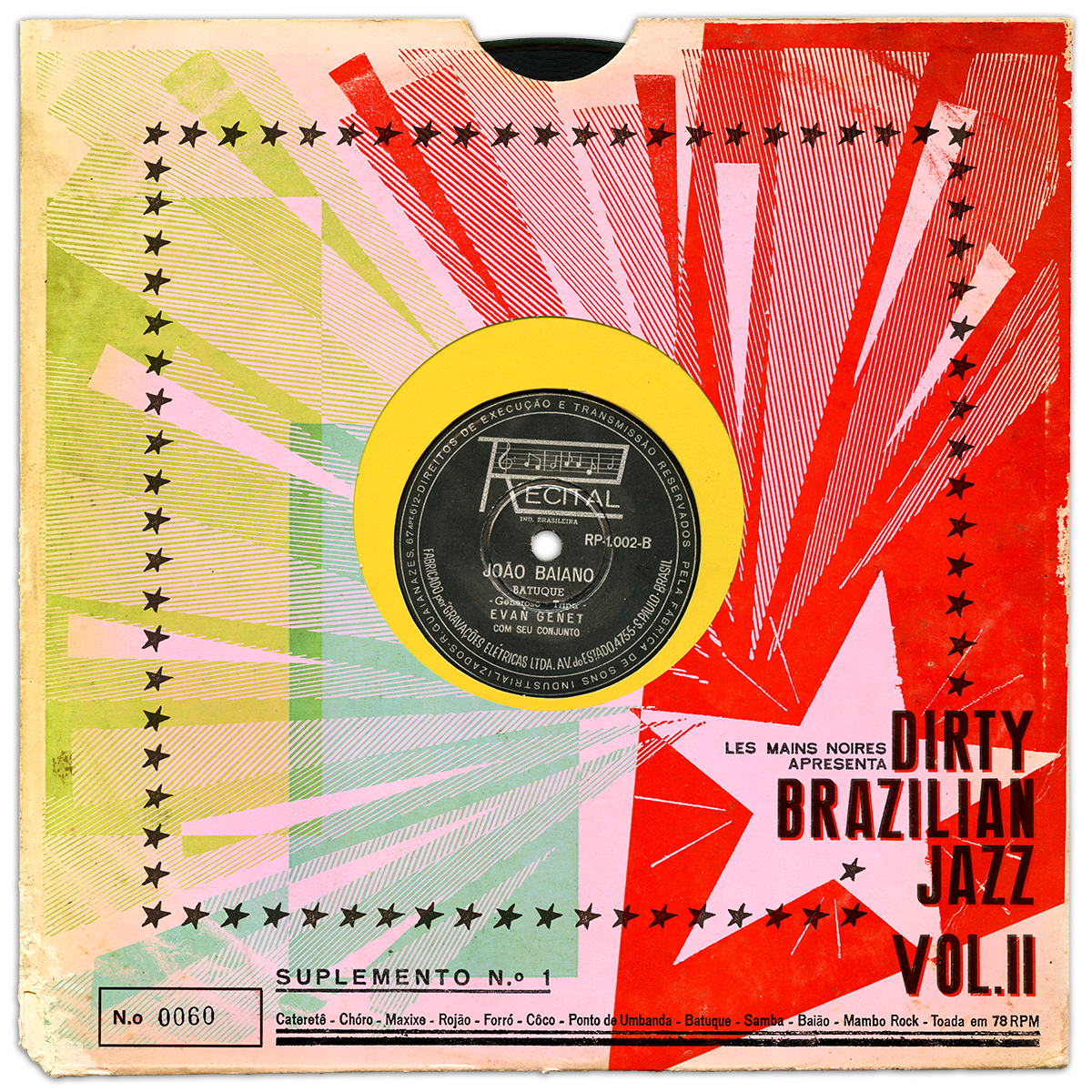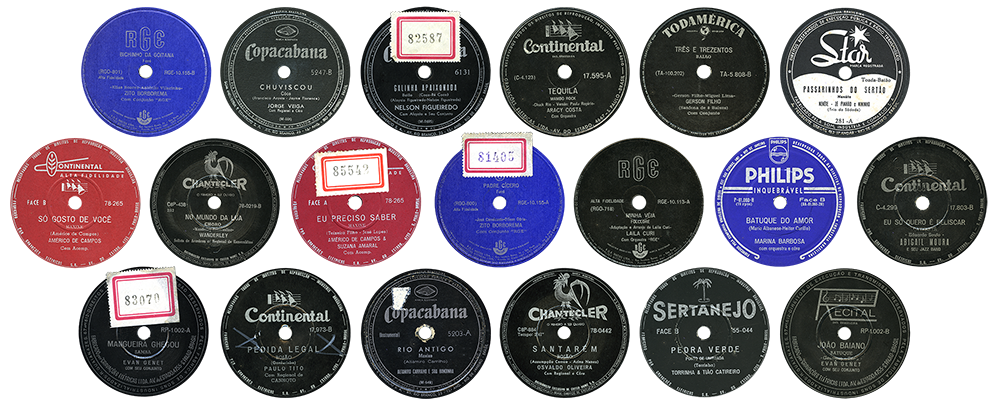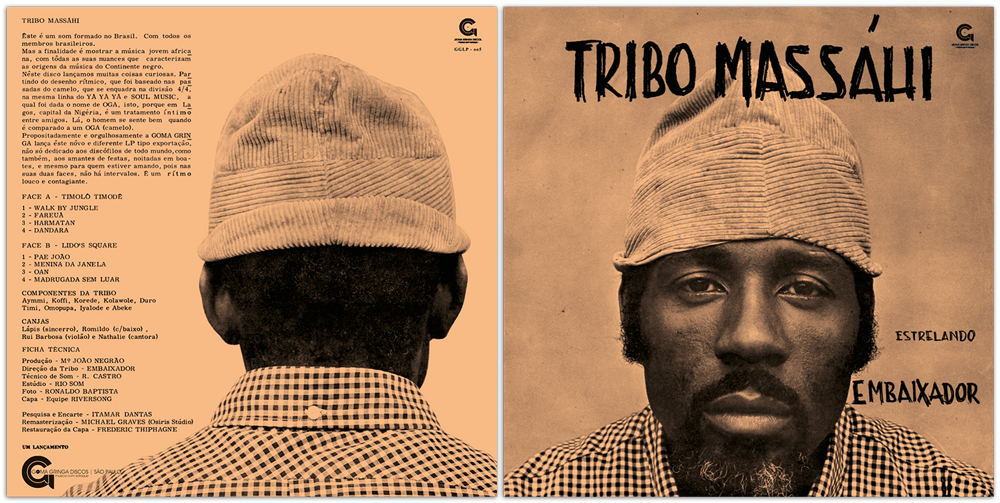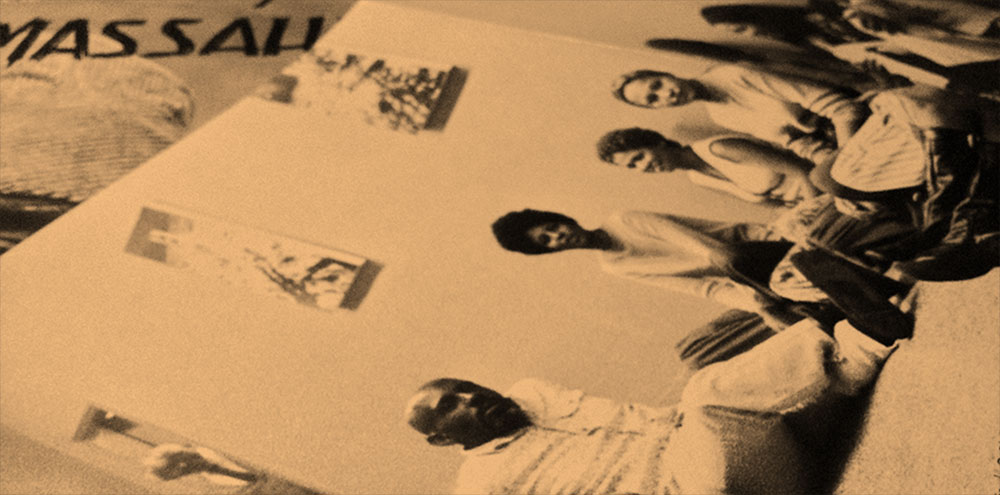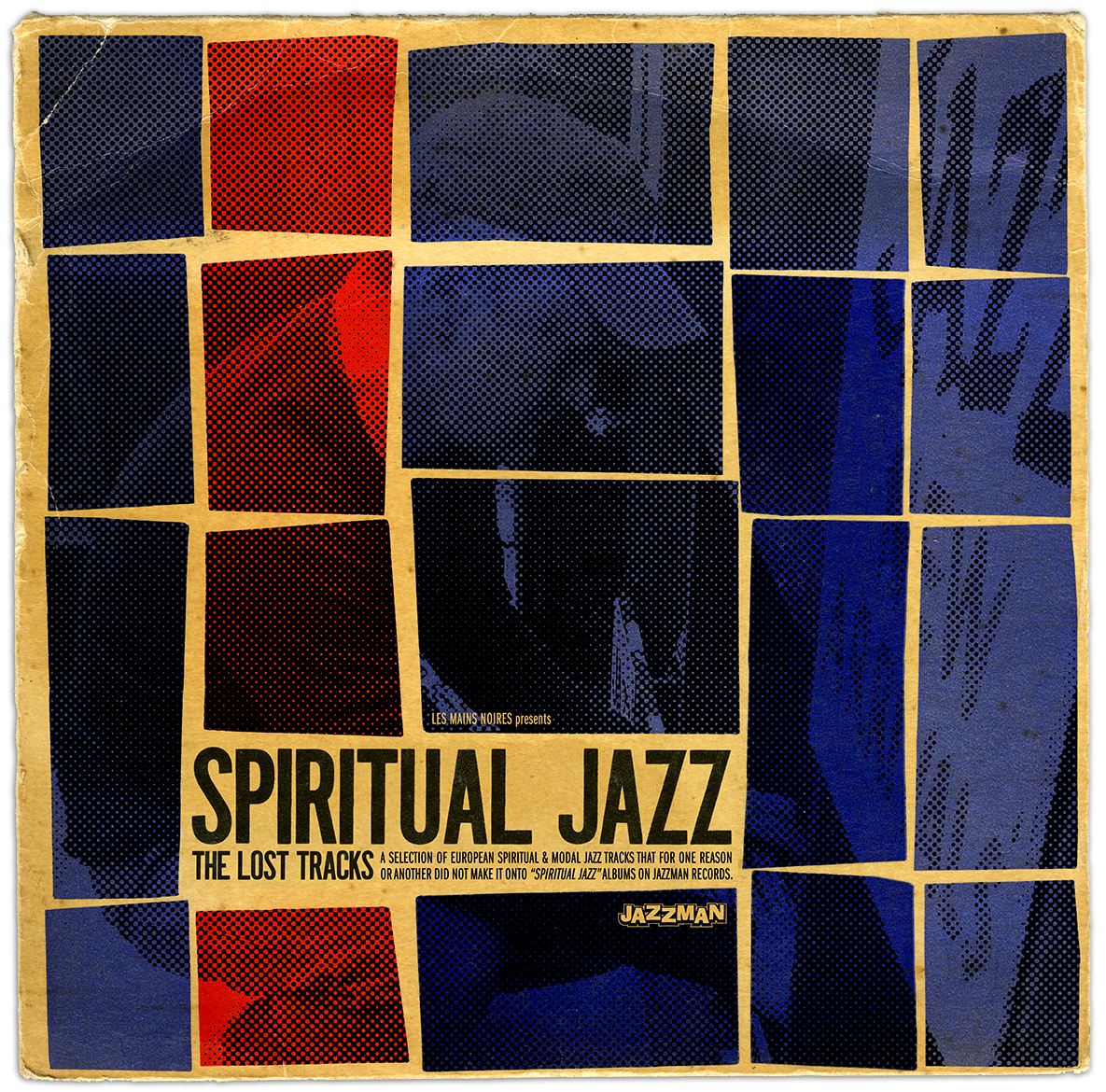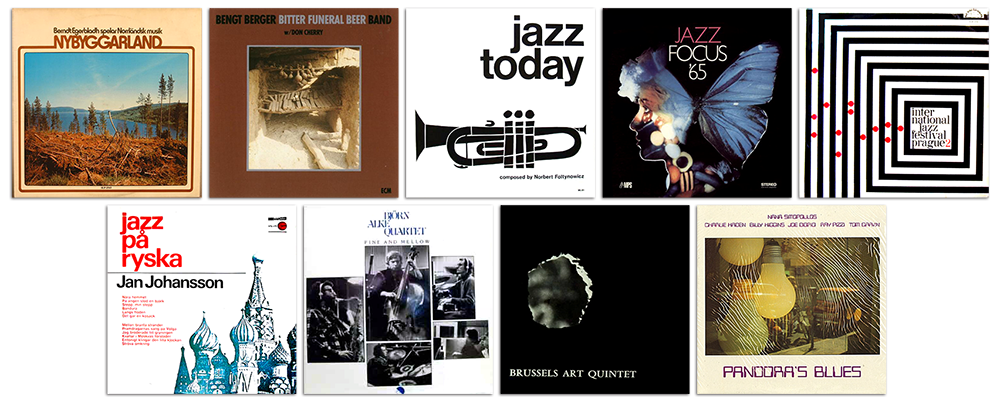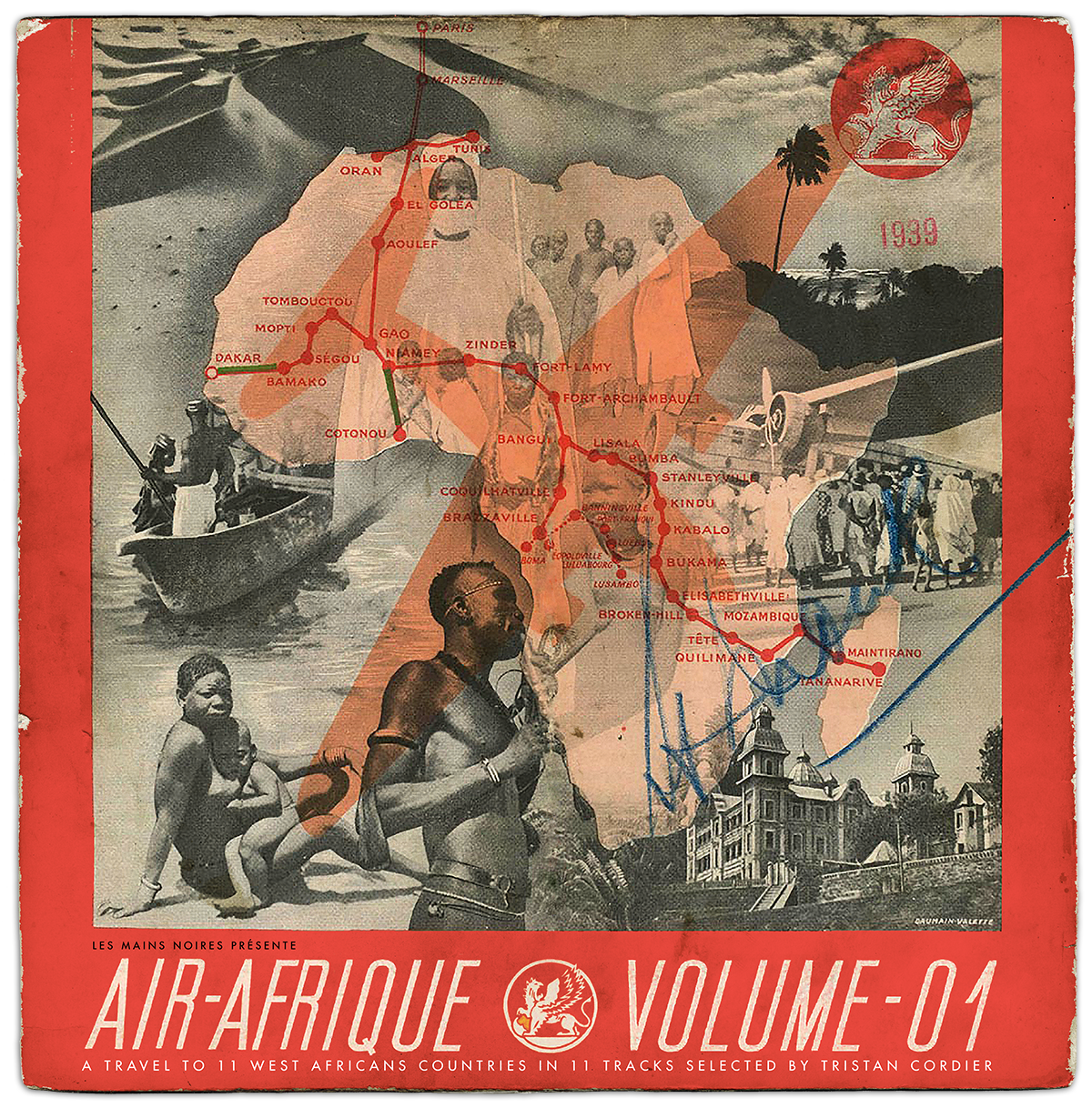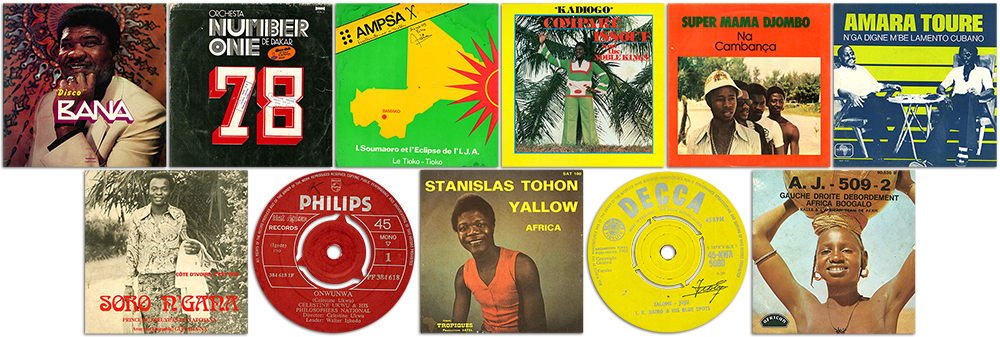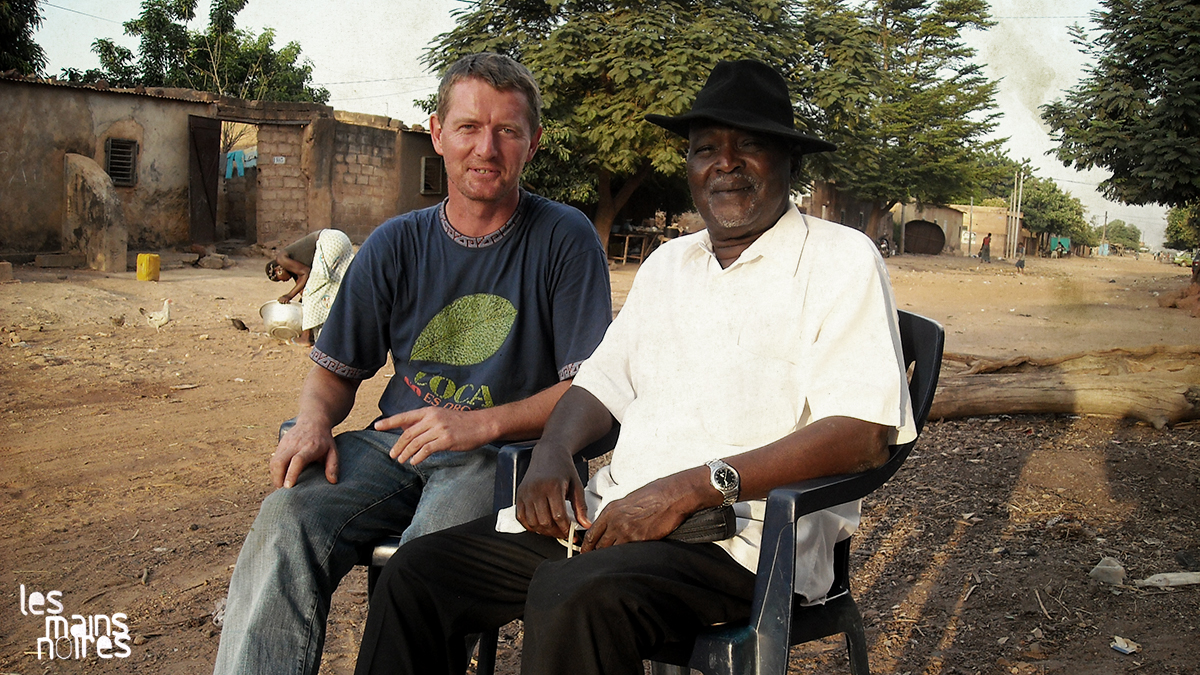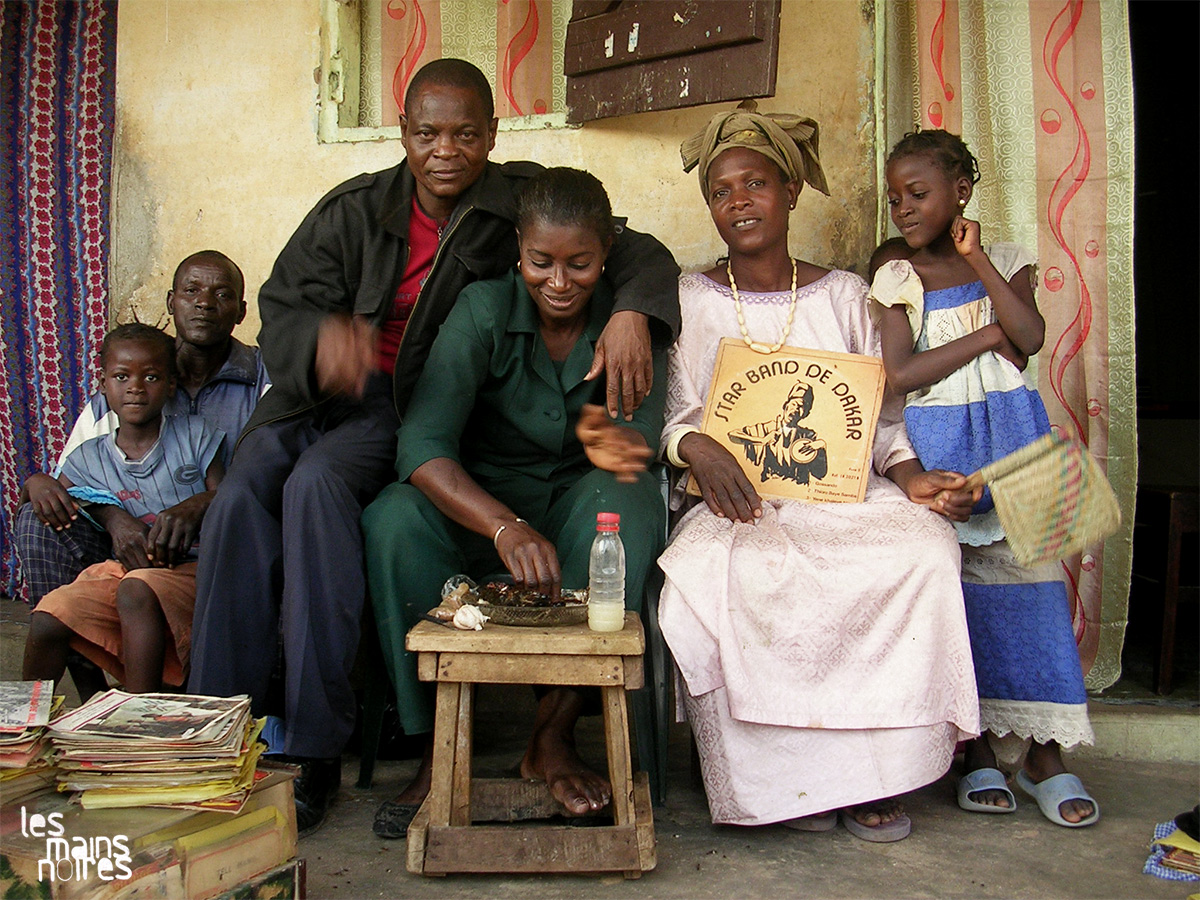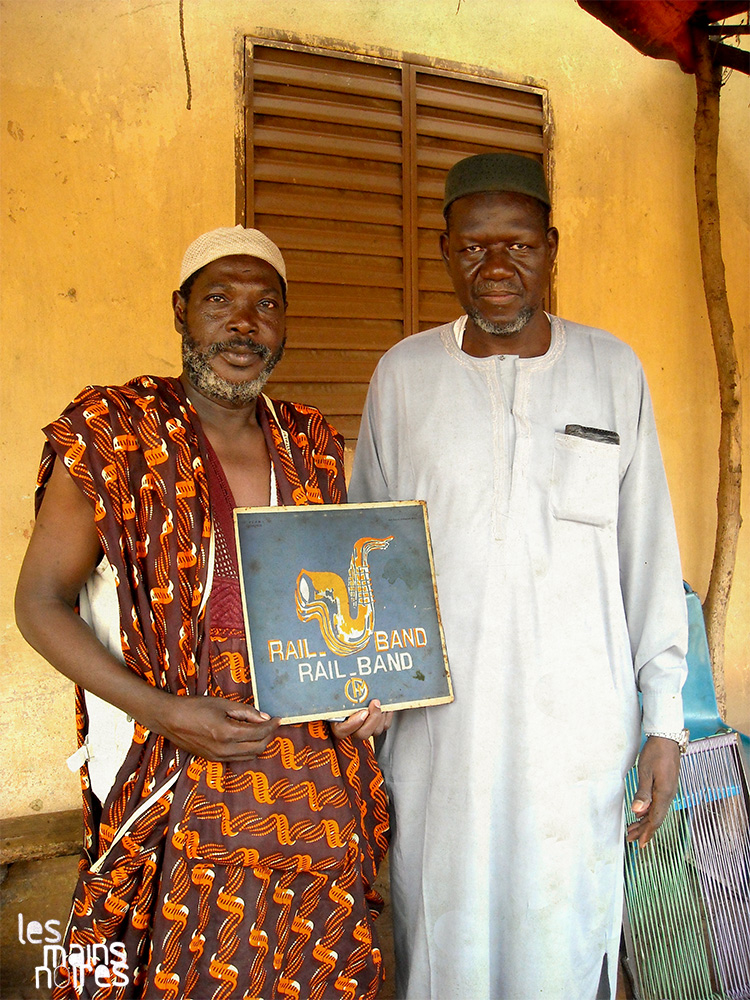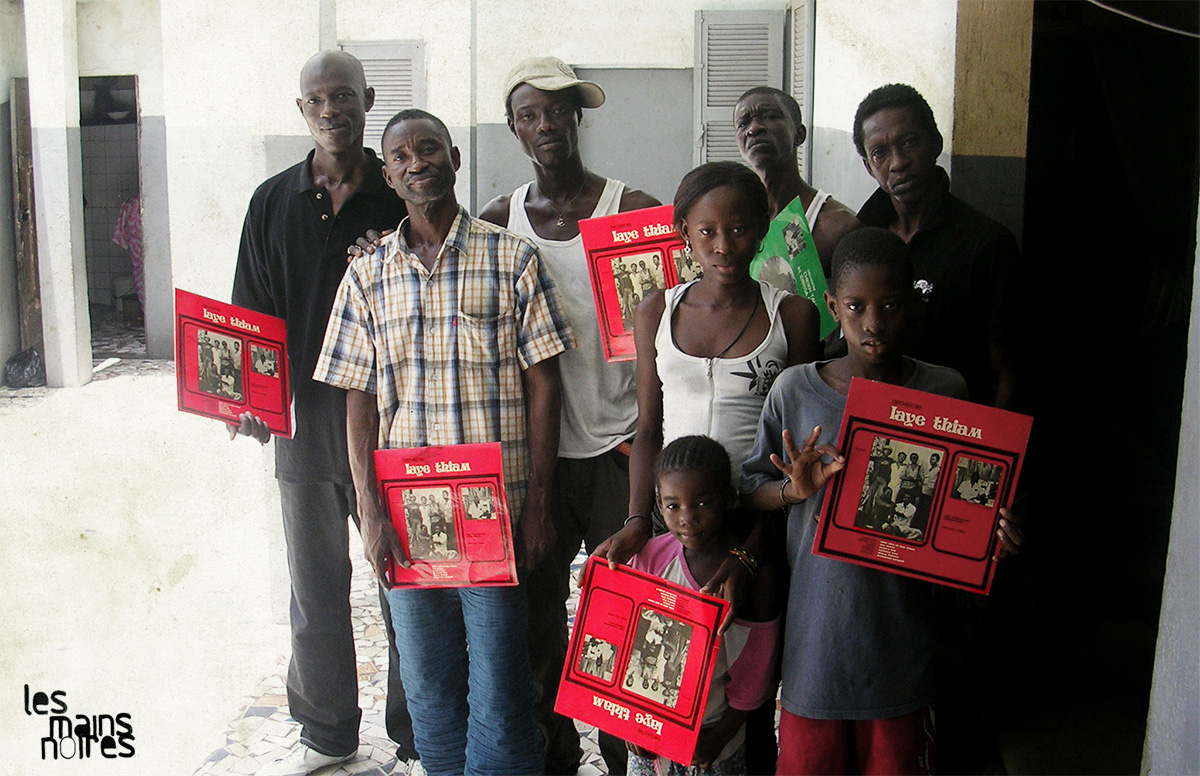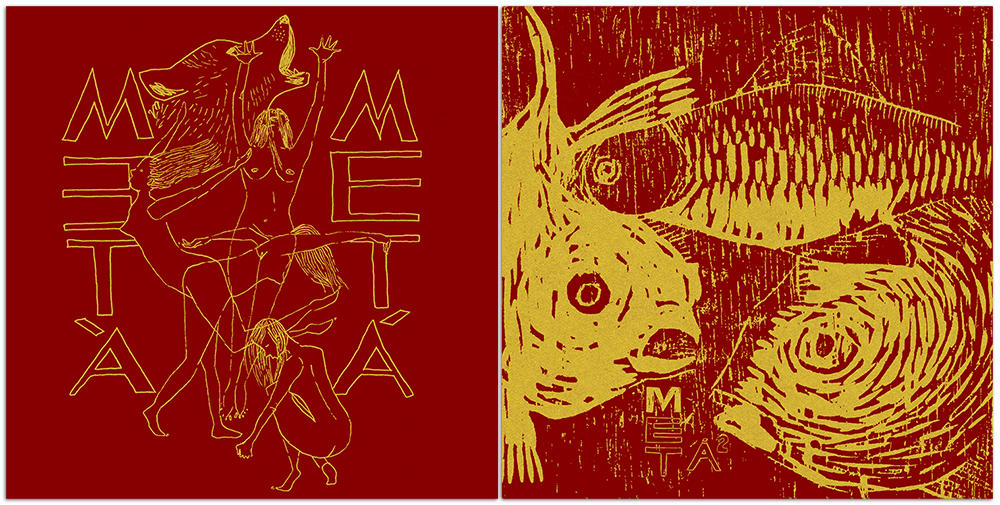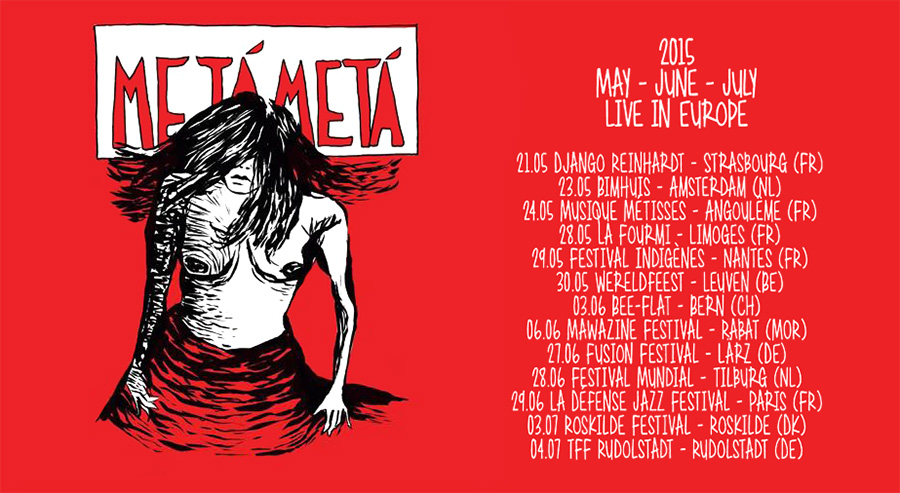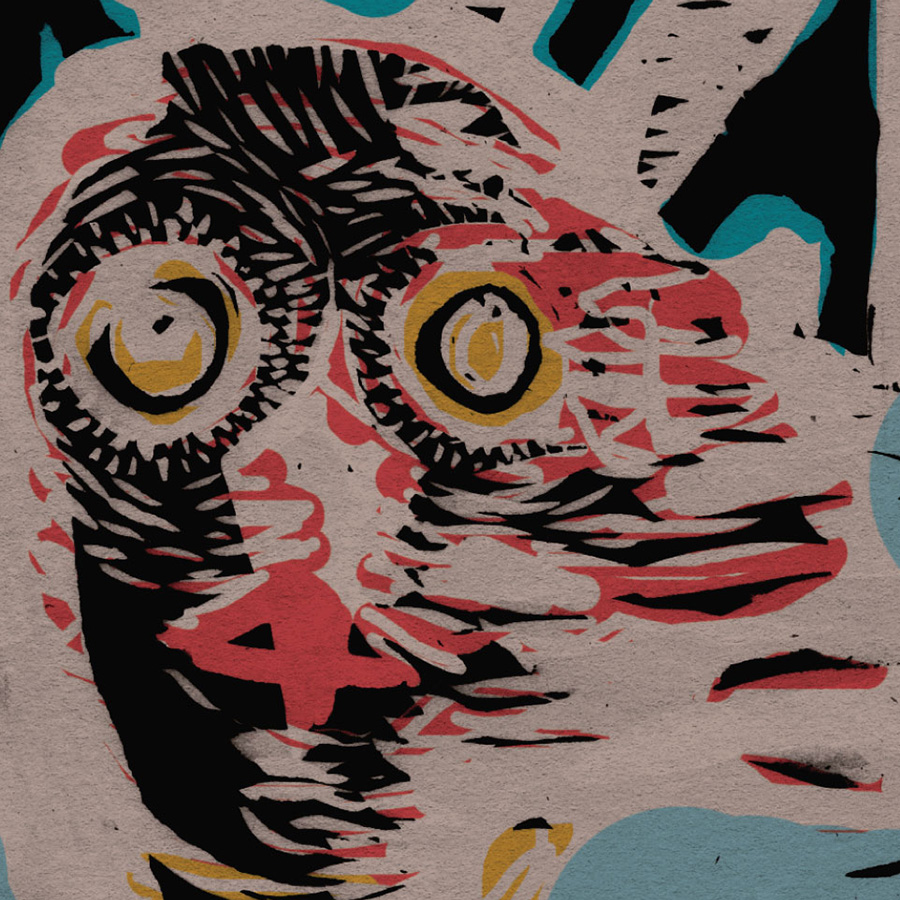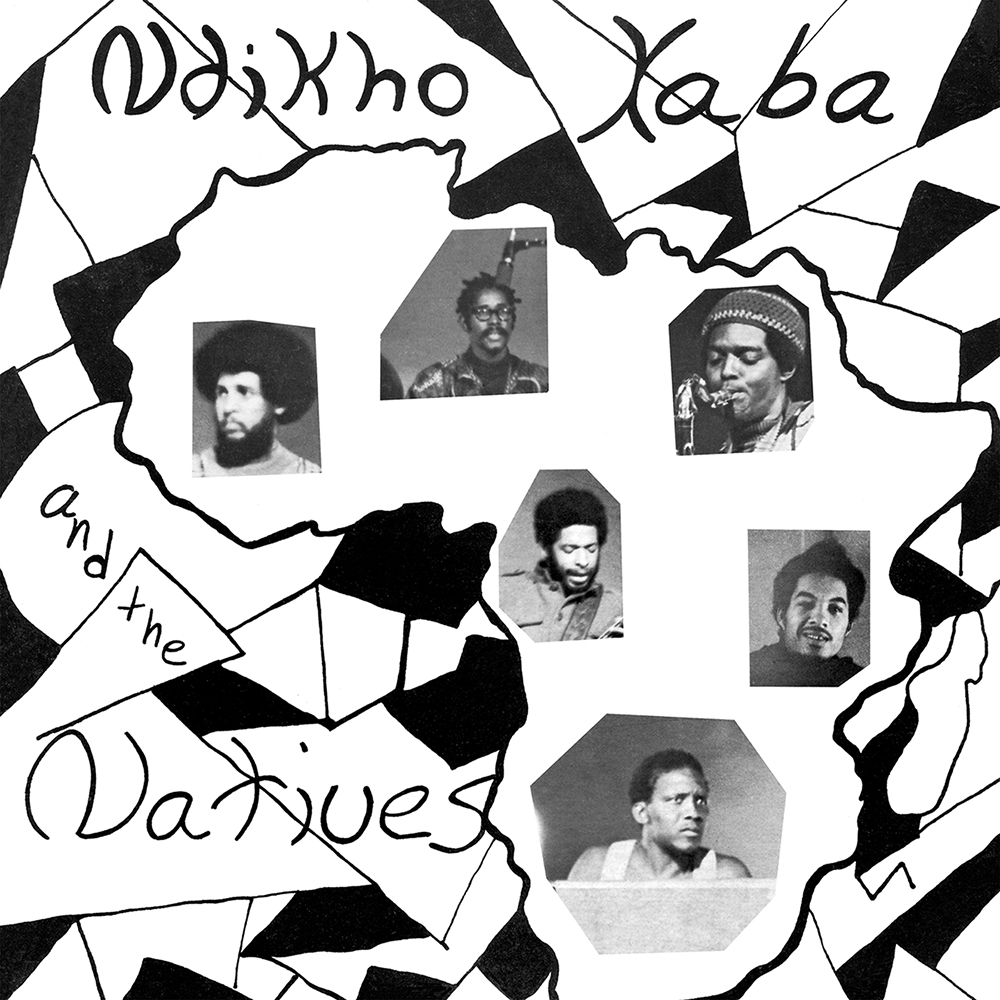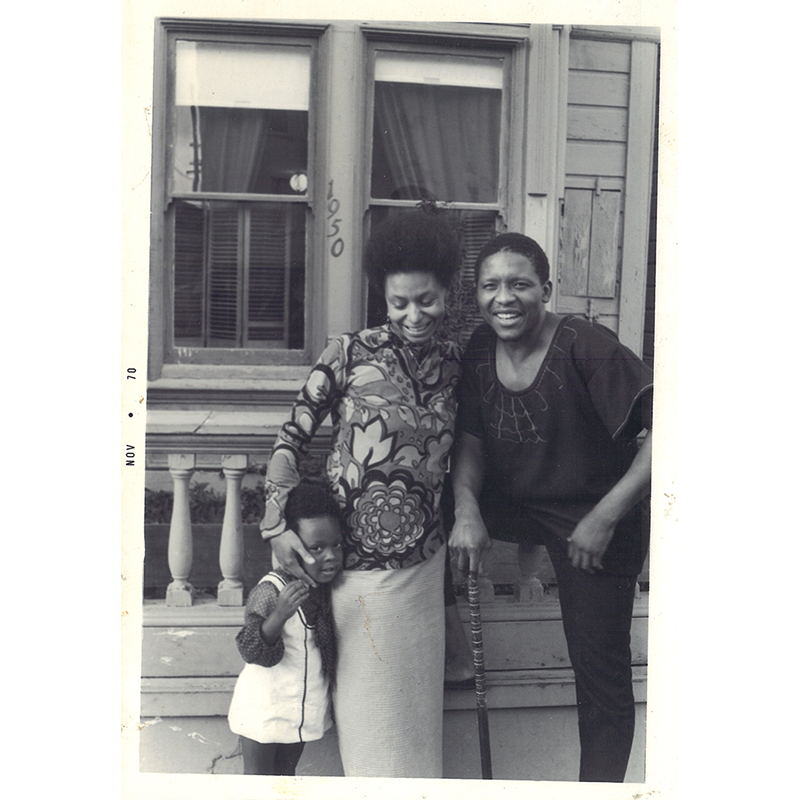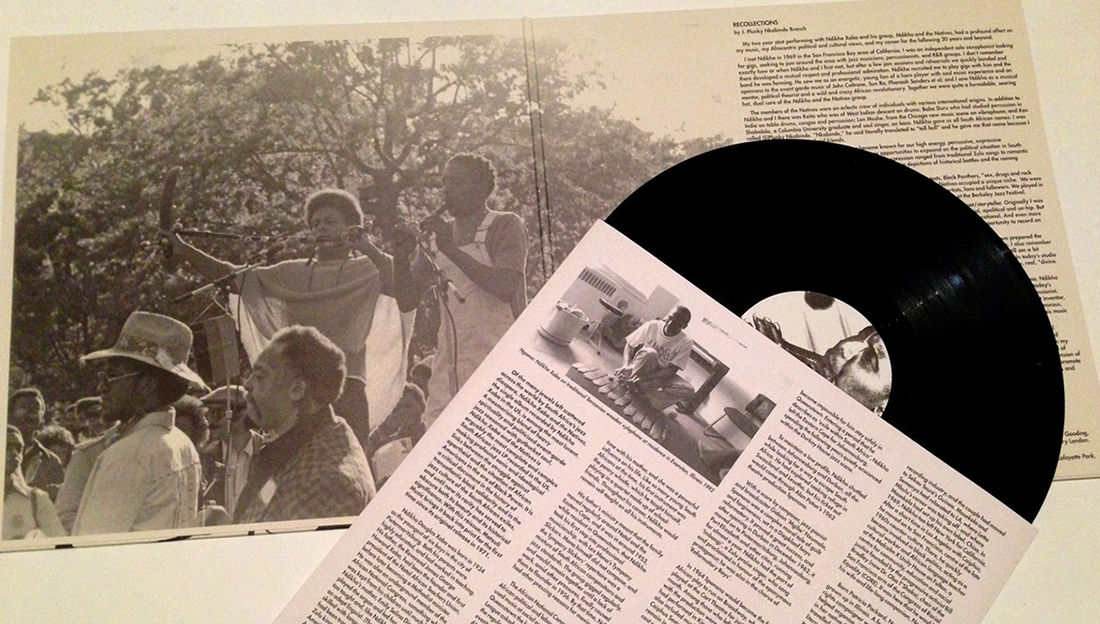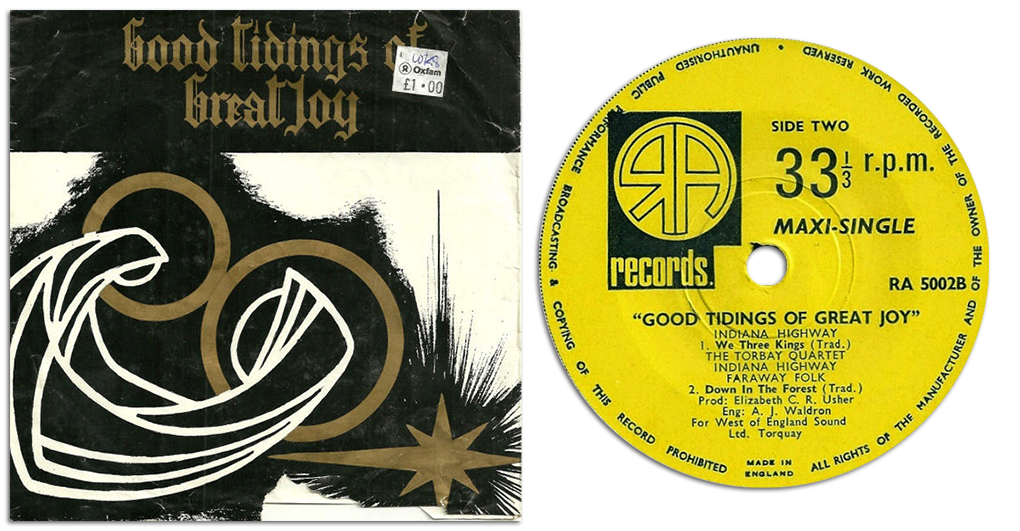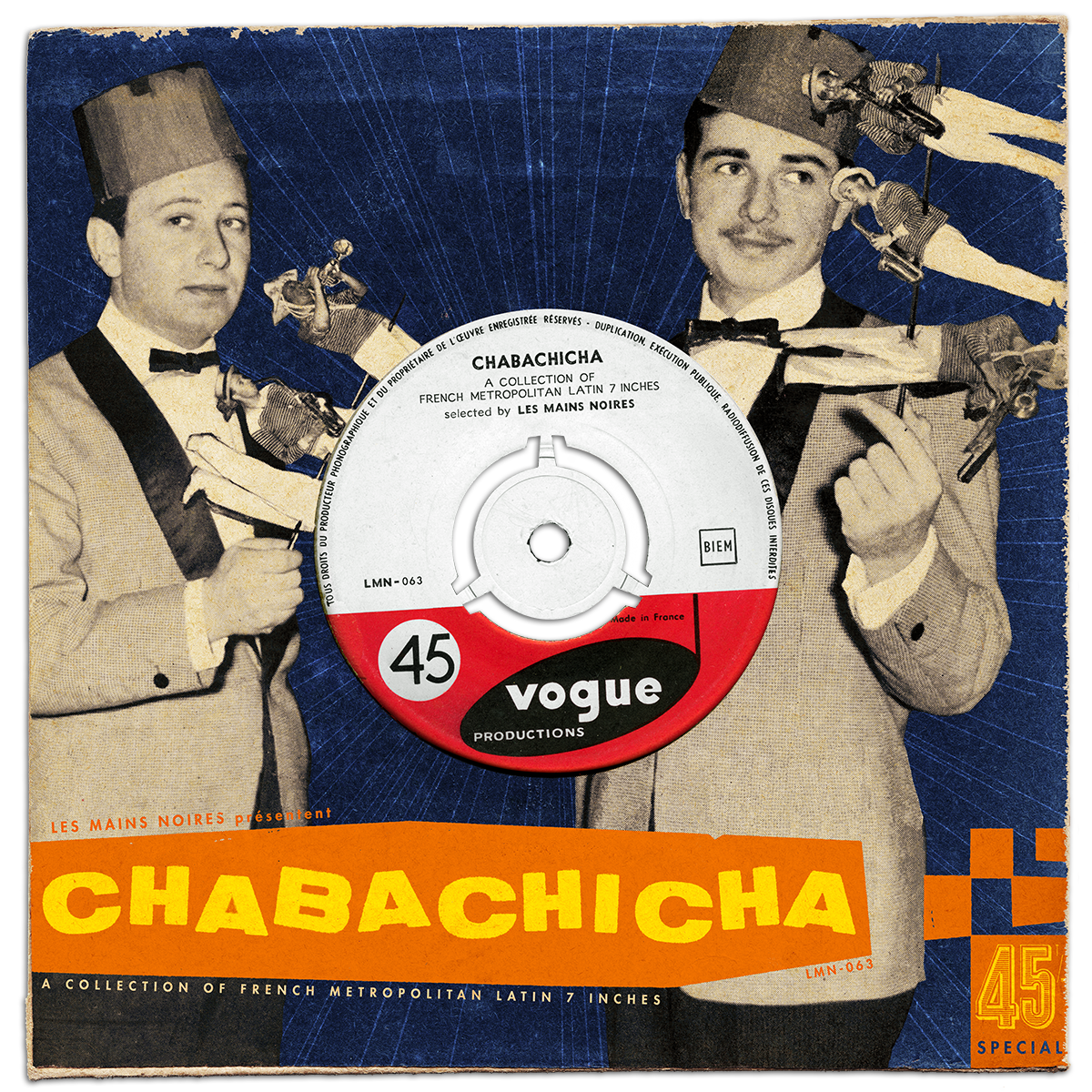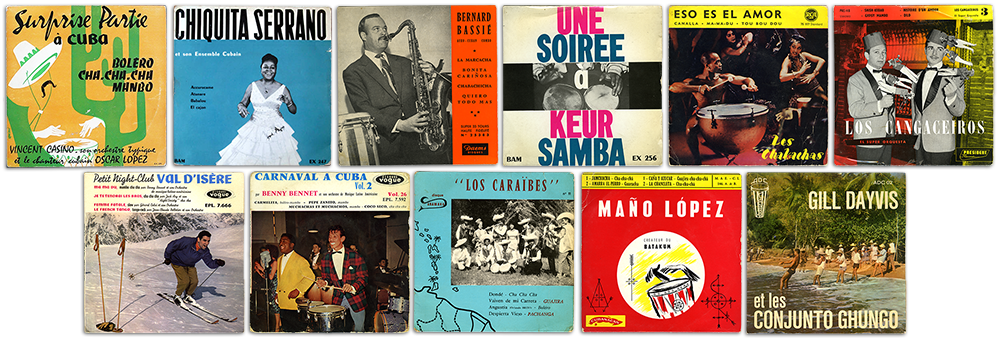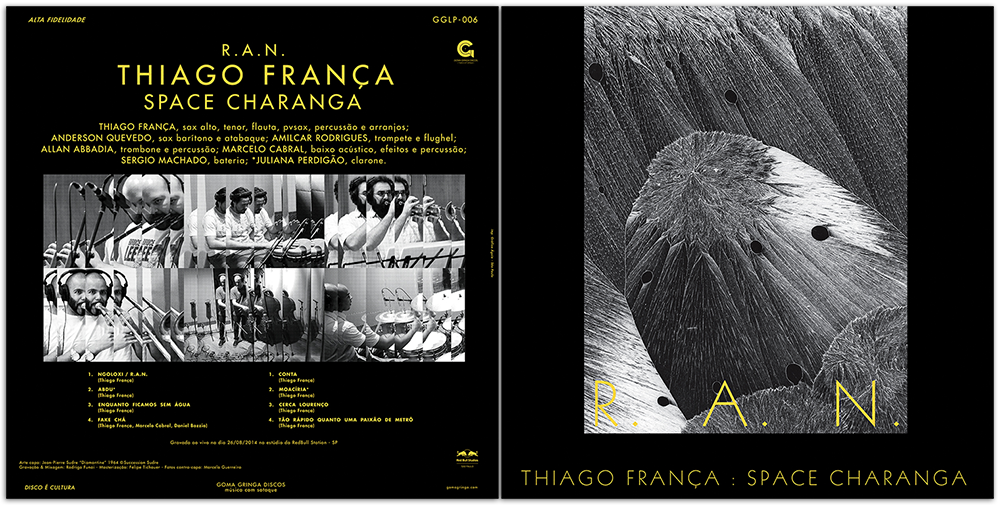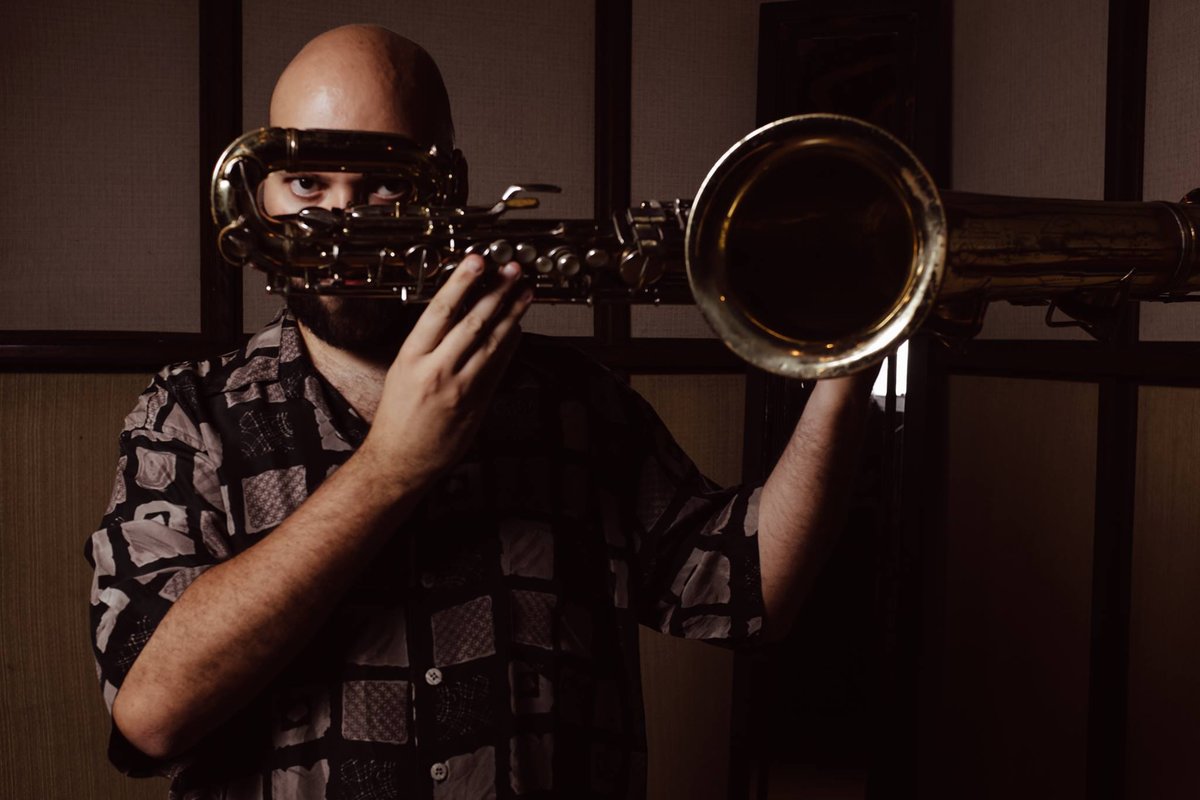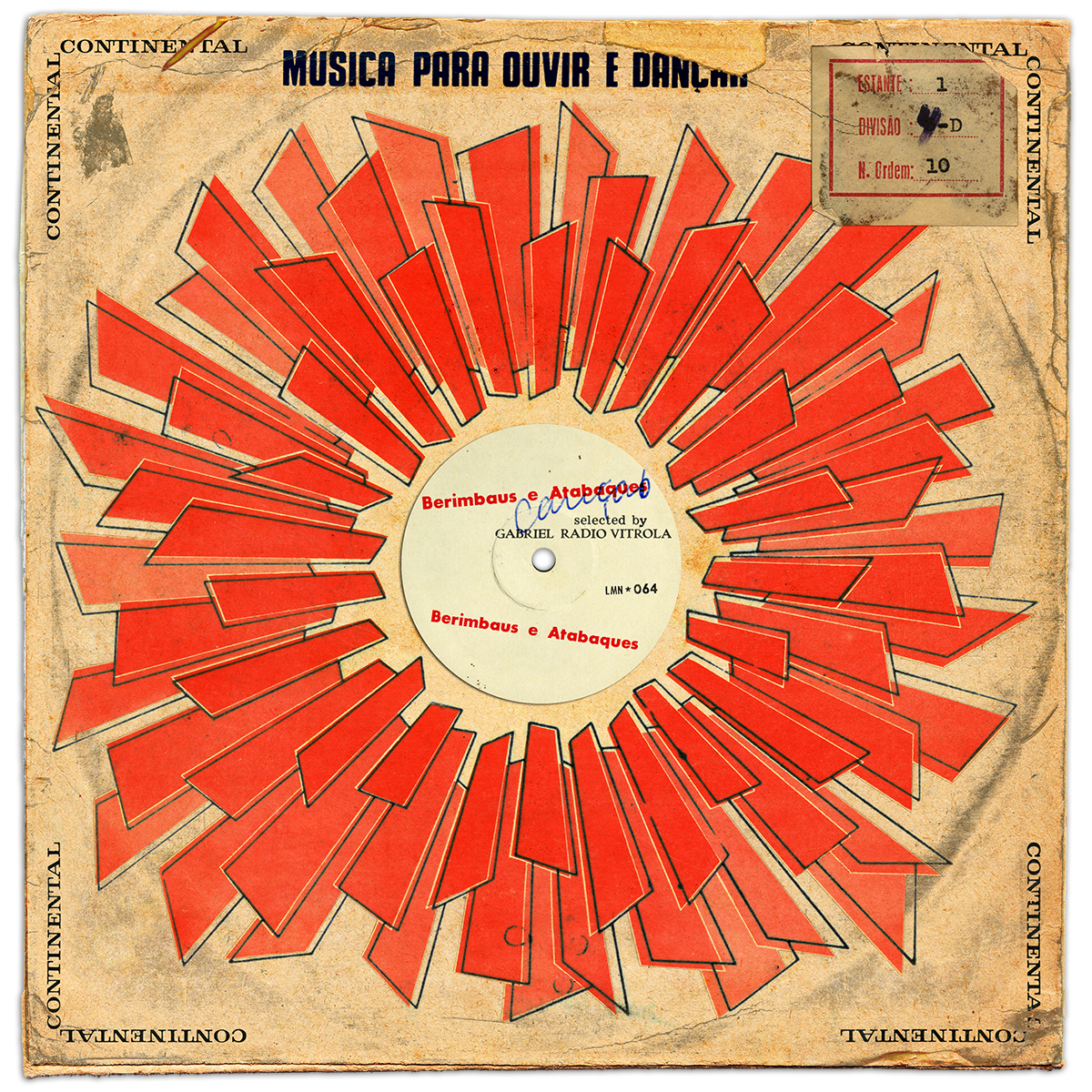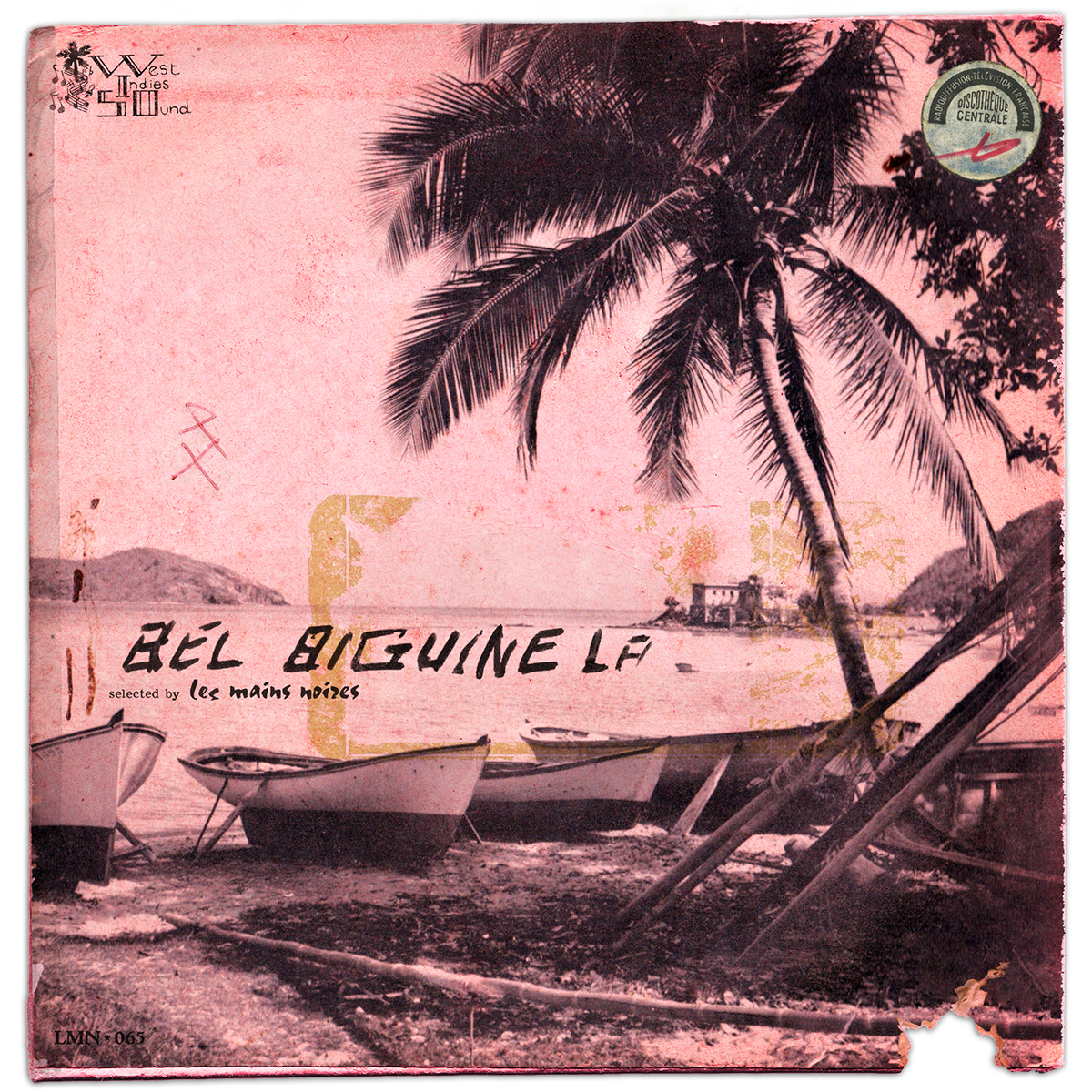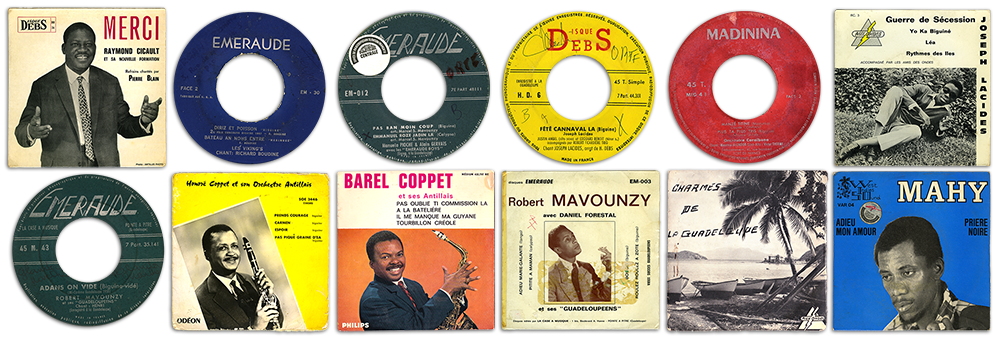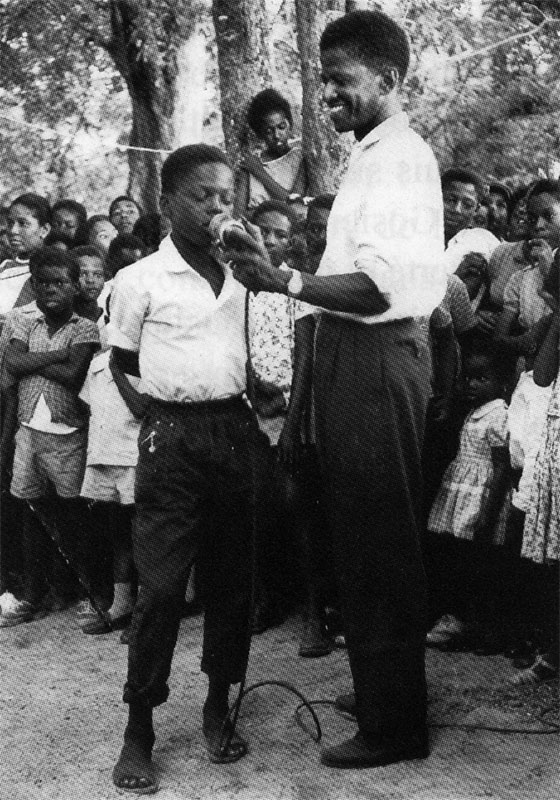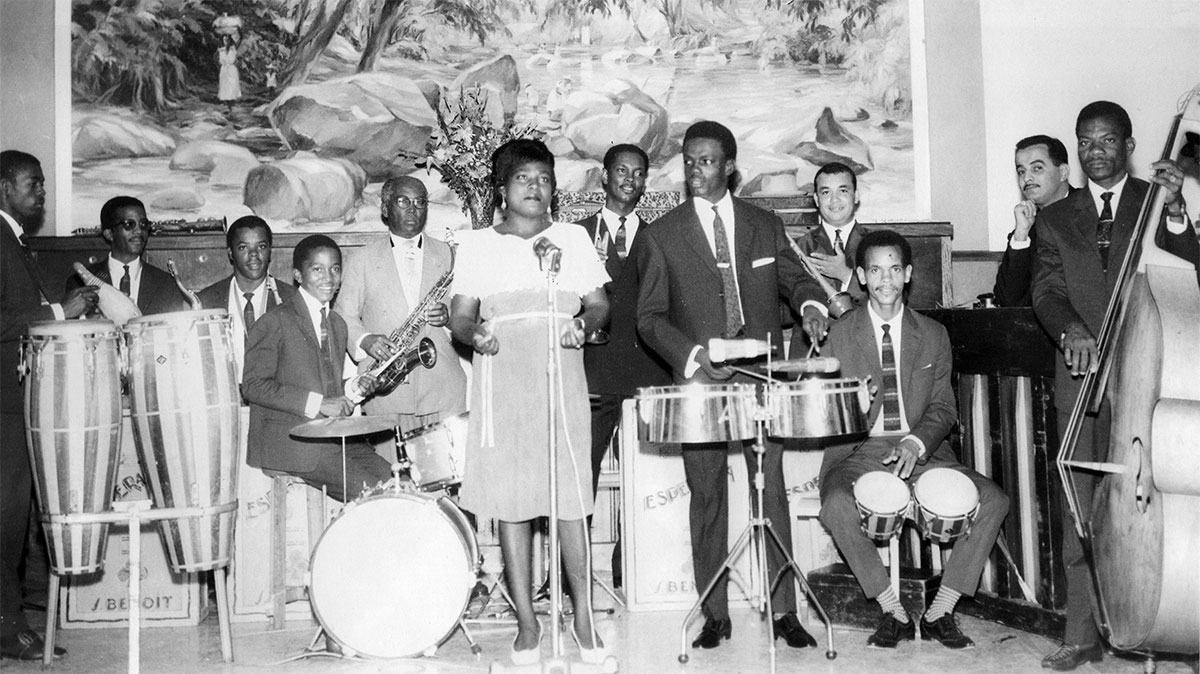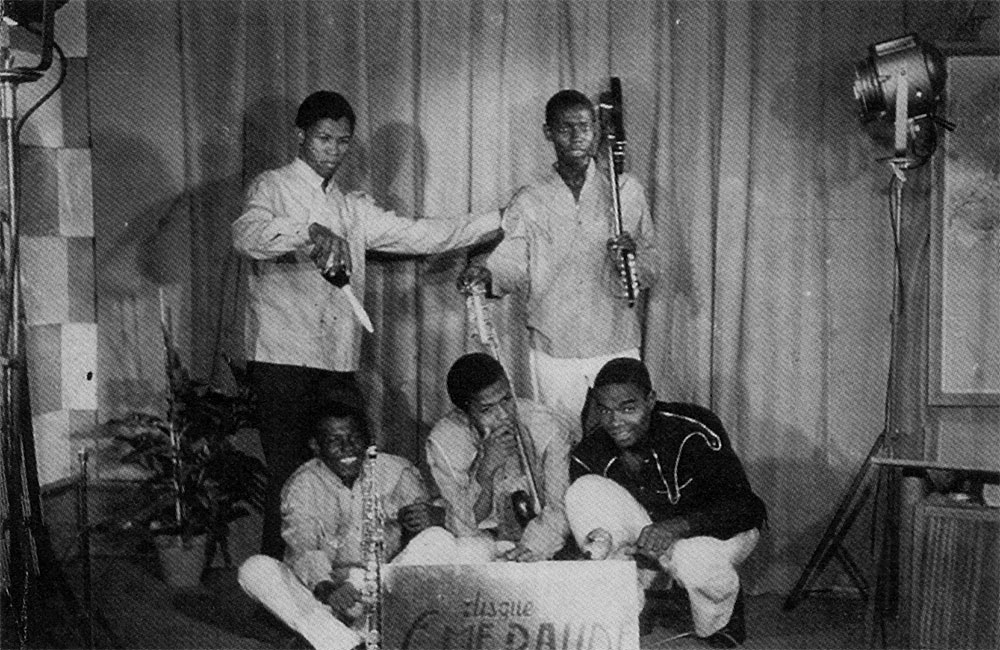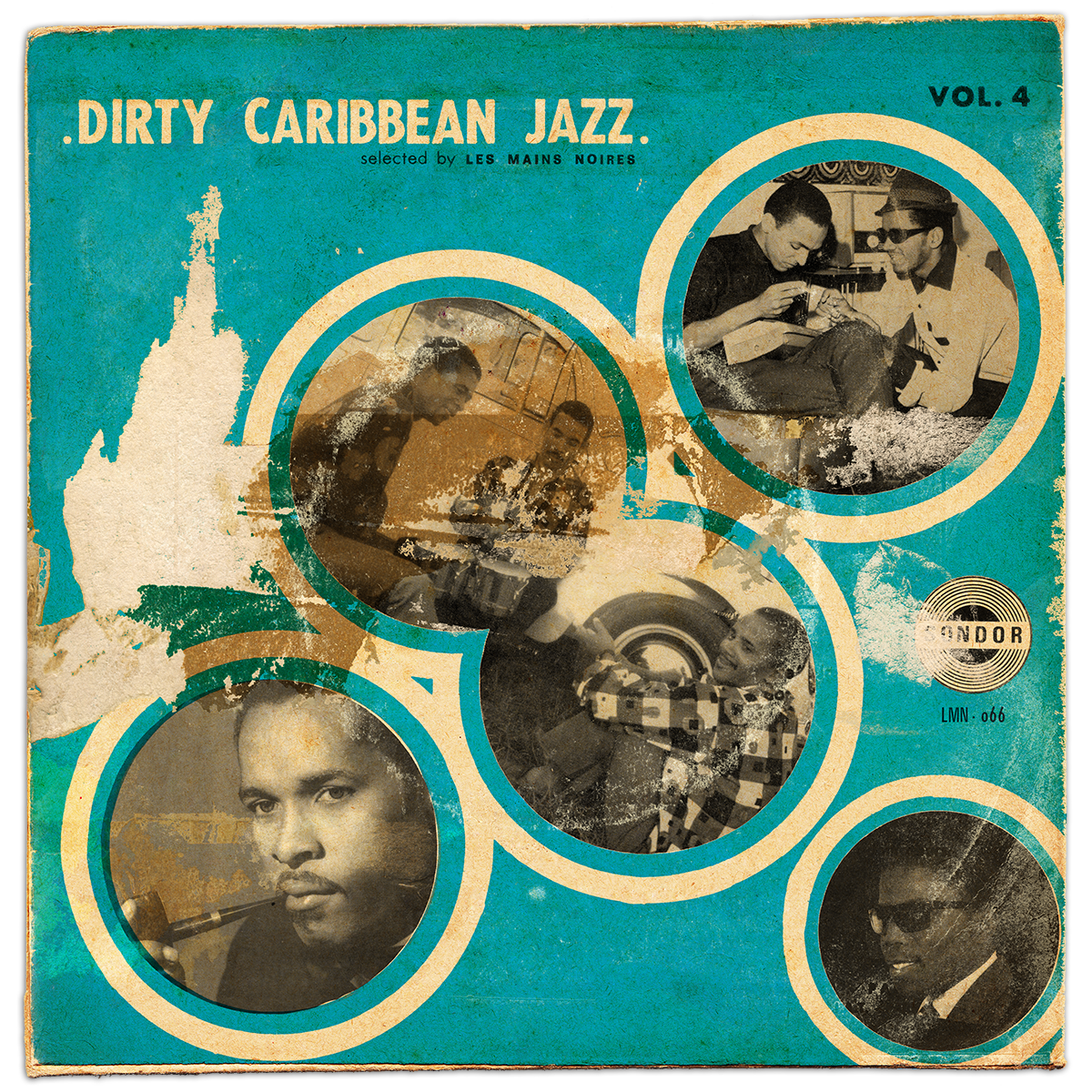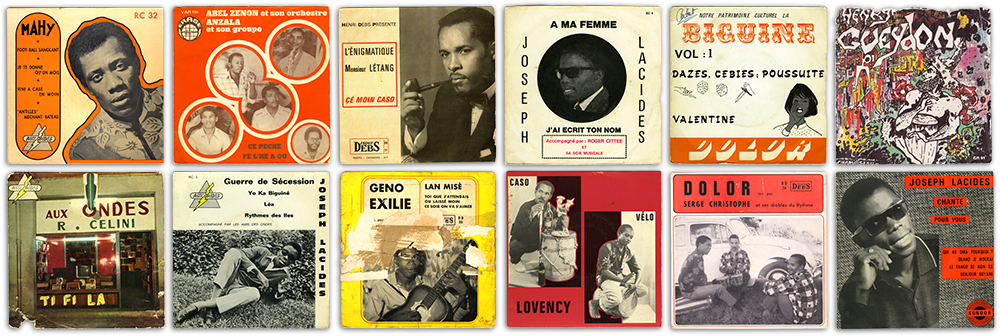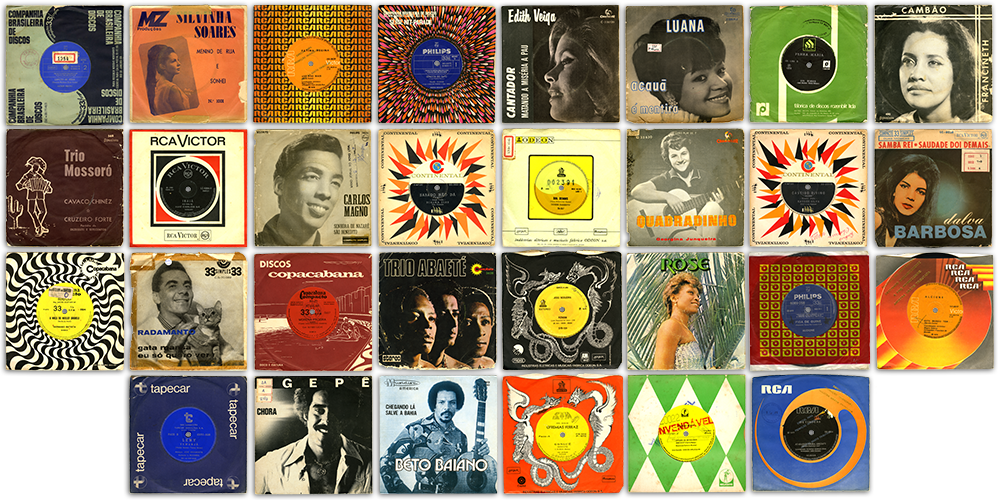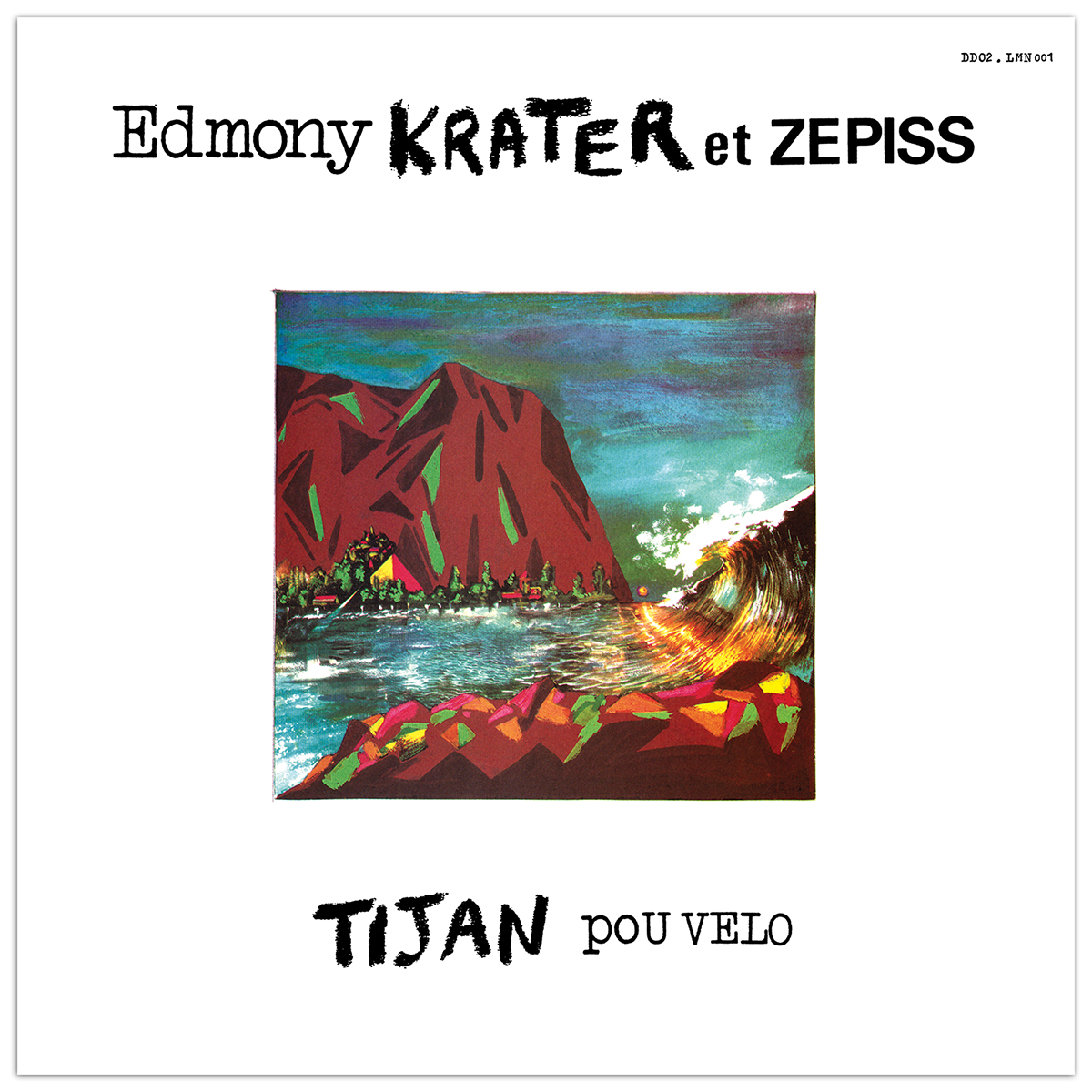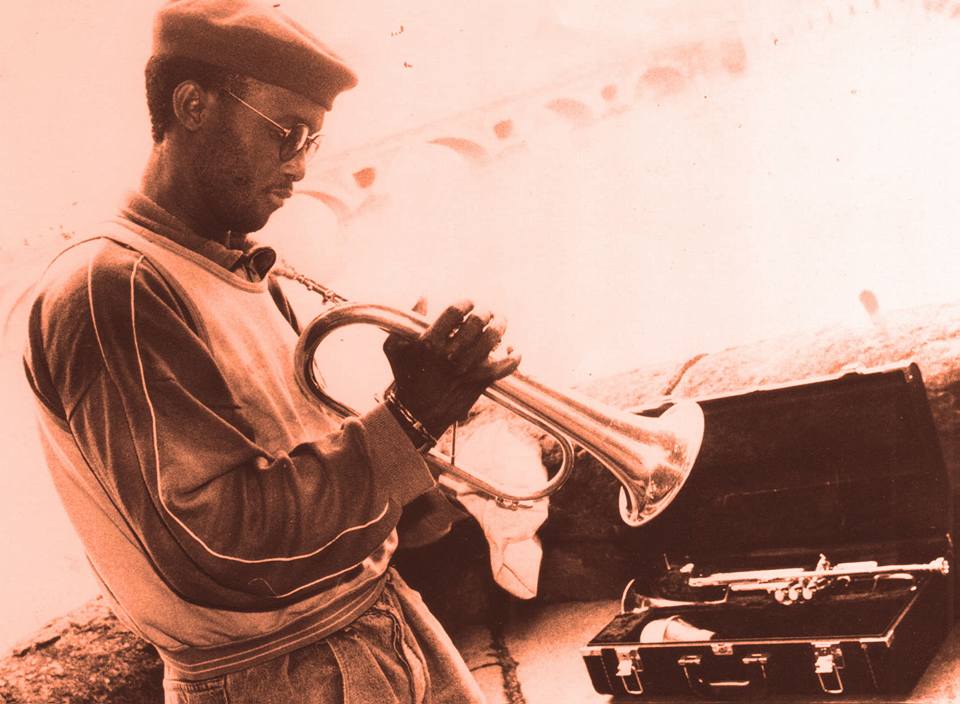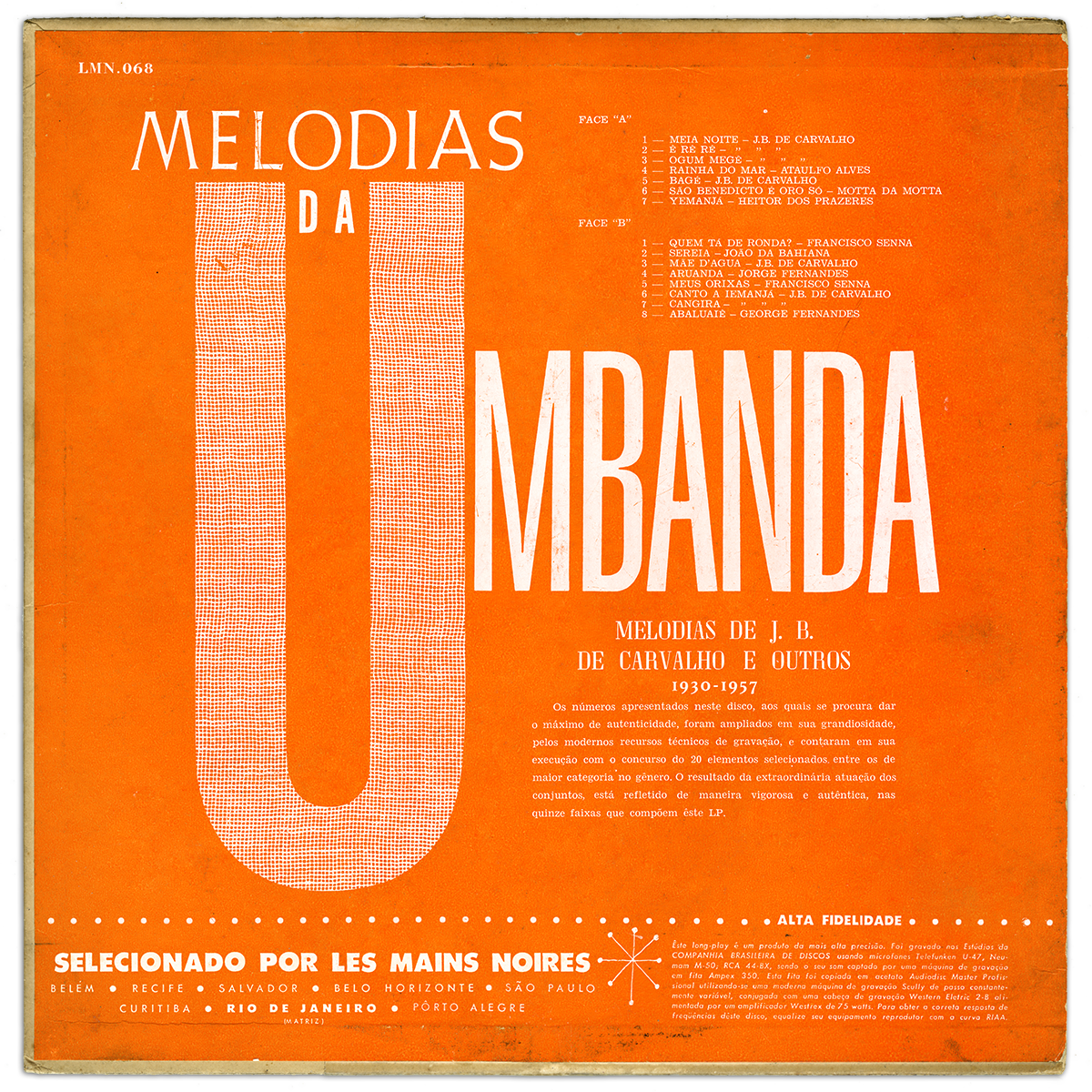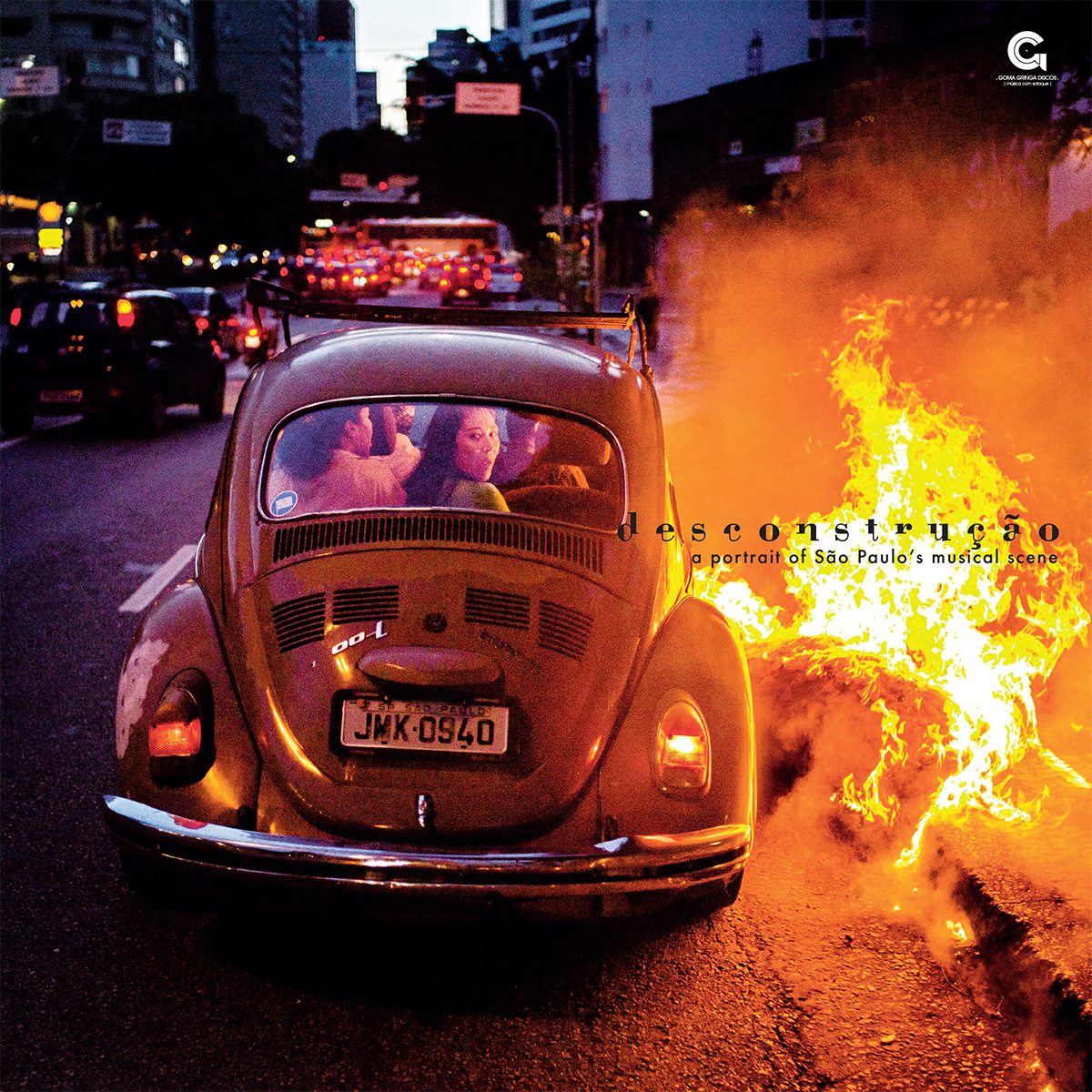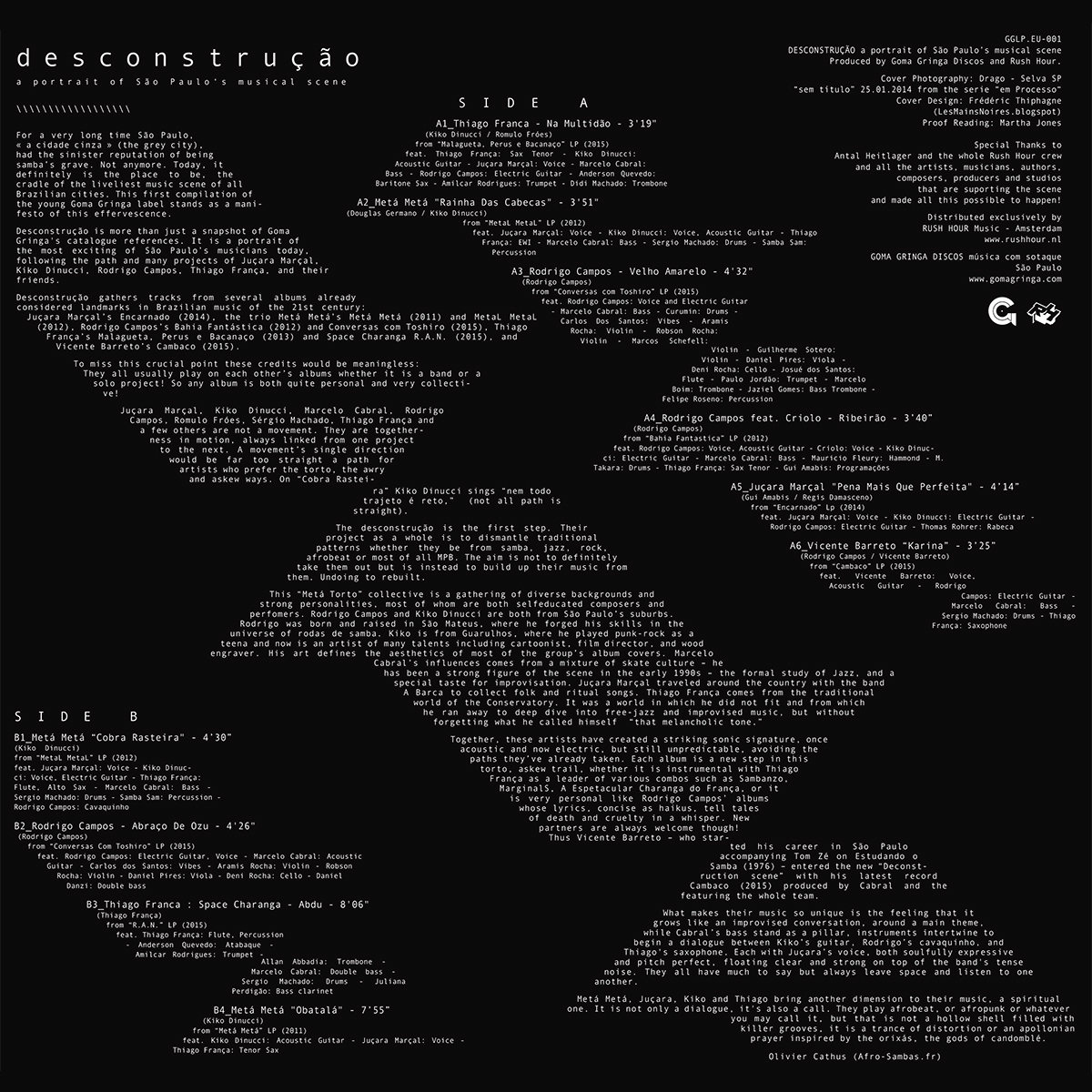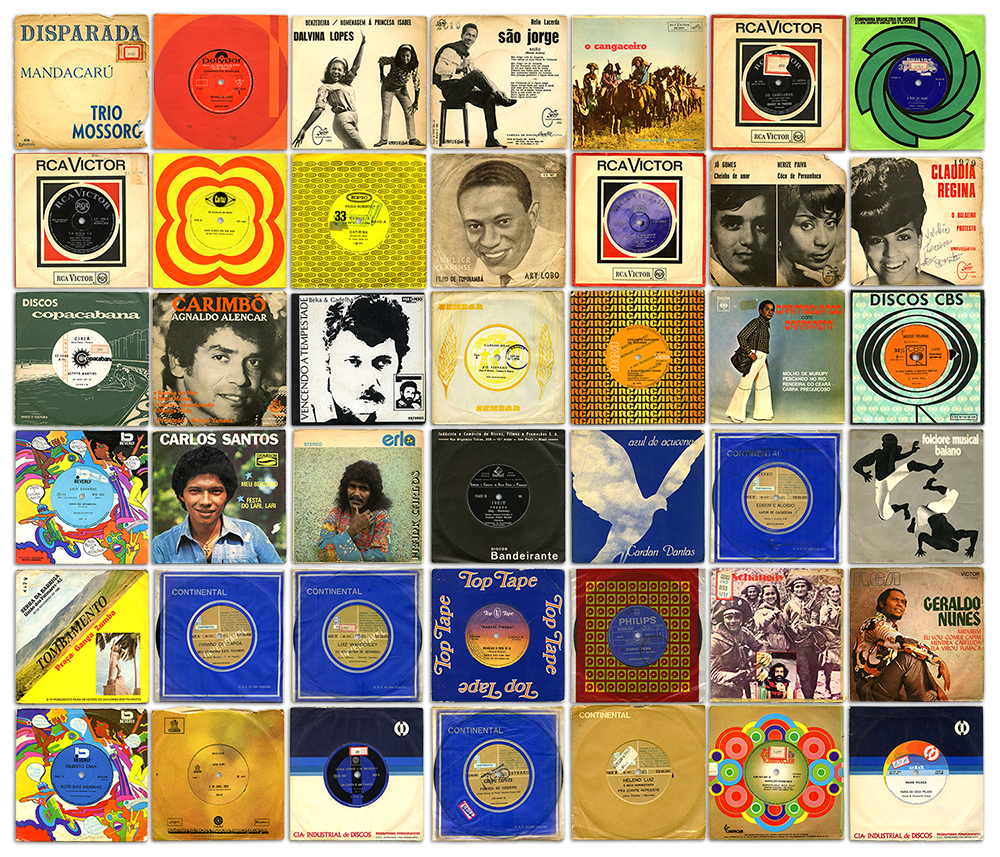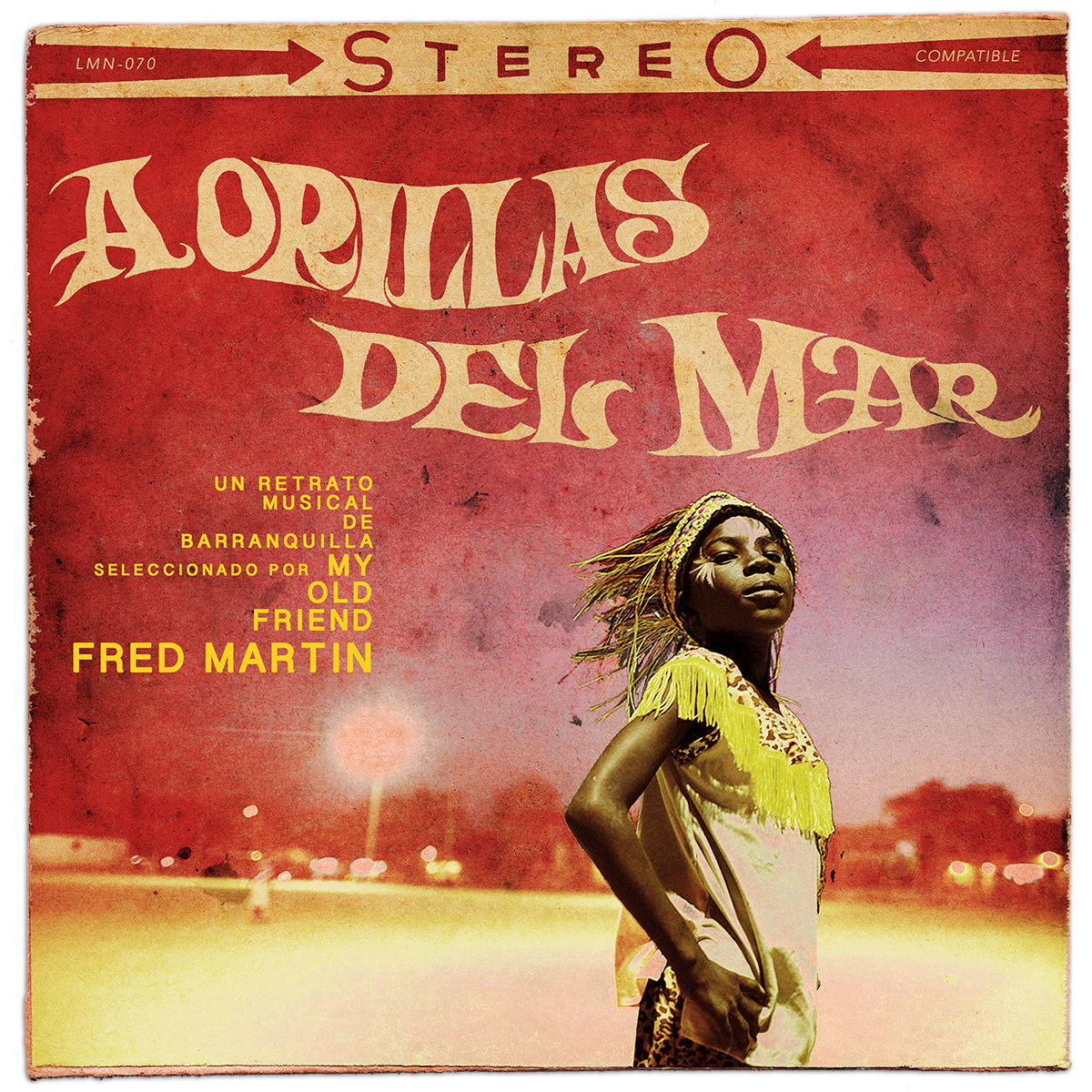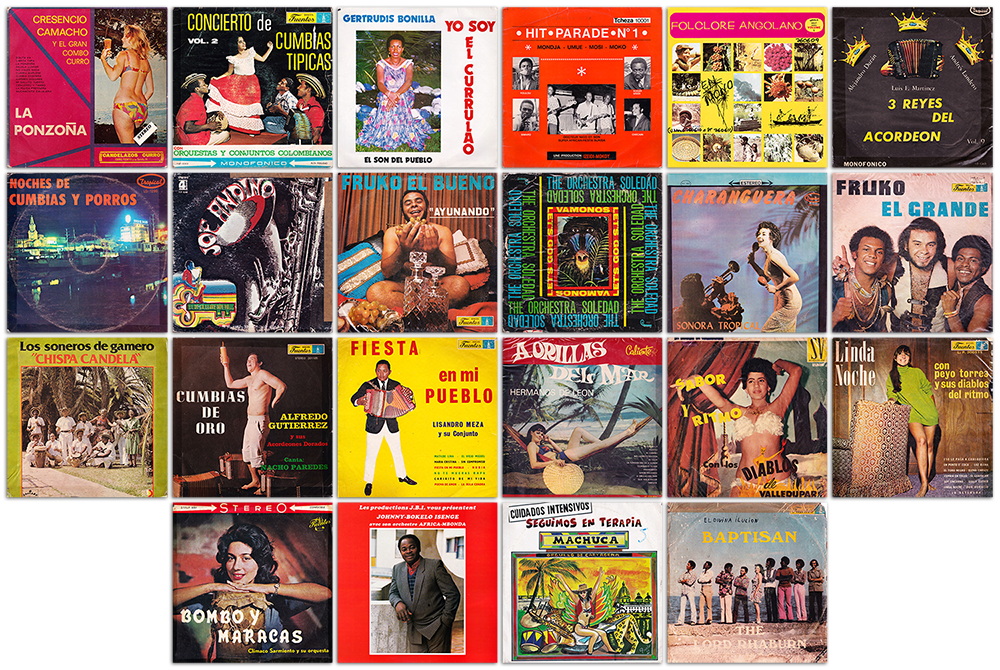
Traditionnal rhythms Carimbó, Forro and Siria compose this selection especially elaborated for the UK's leading Afro, Caribbean and Latin music party collectives, SOFRITO.
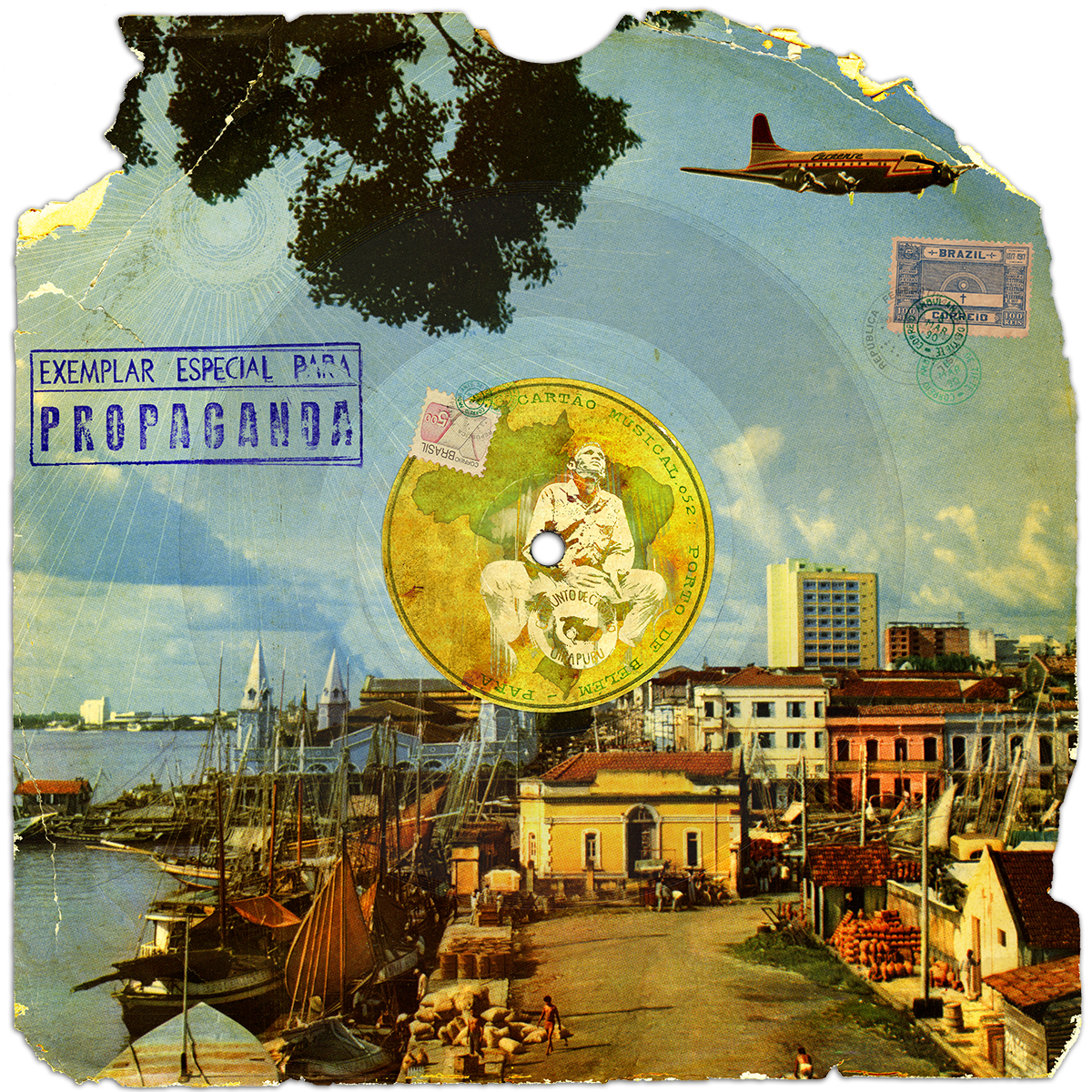
here are some of the best discoveries from researches around North & North East Brasilian music.
Traditionnal rhythms Carimbó, Forro and Siria compose this selection especially elaborated for the UK's leading Afro, Caribbean and Latin music party collectives, SOFRITO.
01° CAMARAO // Retrato de um Forro
02° CONJUNTO ELY FARIAS // Corrupaco
03° GRUPO CARIMBO // Minha paixao
04° MESTRE CUPIJO // Ventinho do norte
05° BANDINHA DO CAMARAO // Xeêm
06° ORLANDO PEREIRA // Carimbo para Yemanja
07° CAMARAO // E proibido cochilar
08° GRUPO DA PESADA // Voa andorinha
09° JOSÉ SILVA E SUAS BAIANAS // Cai sereno
10° ORLANDO PEREIRA // Maruda
11° NAMORADOS DO CARIMBO // Pretinho dengoso
12° CARIMBO DE ALGODOAL // Ê...do lado de lá
13° CONJUNTO O IRAPURU // Maria vamos a praia juntar ajuru
14° NAMORADOS DO CARIMBO // Bacurau
15° VEREQUETE E SEU CONJUNTO UIRAPURU // Xote paraense
16° SILUCA // Xendengo
17° ORLANDO PEREIRA // Carimambo
18° JANJAO // Meu barquinho

.BRIEF HISTORY OF CARIMBÓ.

More than a musical style of Pará, the Carimbó is one of the most representative manifestations of the Amazonian culture. According to some researchers, the contributions of Indian and African culture in Pará formed the roots of the rhythm, which already have more than 200 years of history.
This extraordinary artistic creativity of the people of Pará was created by the Tupinambá indians who, according to historians, were gifted of an unusual artistic sense, leading them to be regarded, in the tribes, as true demigod.
Initially, according to all appearances, the dance Carimbó was presented in a monotonous way, like the great majority of Indian dances. When the African slaves made contact with this artistic manifestation of Tupinambá, they started to improve it, transforming this monotony to vibrations close from African batuque.
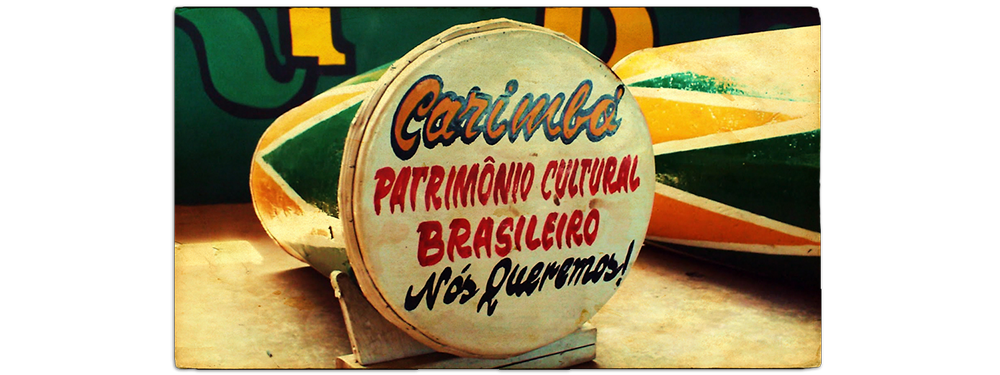 The Carimbó was and is still played nowadays with the drum lying on the floor and the musician sitting on it for hands drumming. In 1767, the jesuit Frei João Daniel wrote about the rhythm sung and danced by the Indians Tupinambás, from a drum made of hollow wood covered with animal skin: the curimbó, which led to the current name of the music and dance.
The Carimbó was and is still played nowadays with the drum lying on the floor and the musician sitting on it for hands drumming. In 1767, the jesuit Frei João Daniel wrote about the rhythm sung and danced by the Indians Tupinambás, from a drum made of hollow wood covered with animal skin: the curimbó, which led to the current name of the music and dance.Check out this video and sound recording of traditionnal Carimbó,
shooted by Alfredo Bello, founder of the label Mundo Melhor.
.Mestre Montano na Ilha de Maiaundeuã em Maracanã.
---------------------------------------------
.MESTRE VEREQUETE.
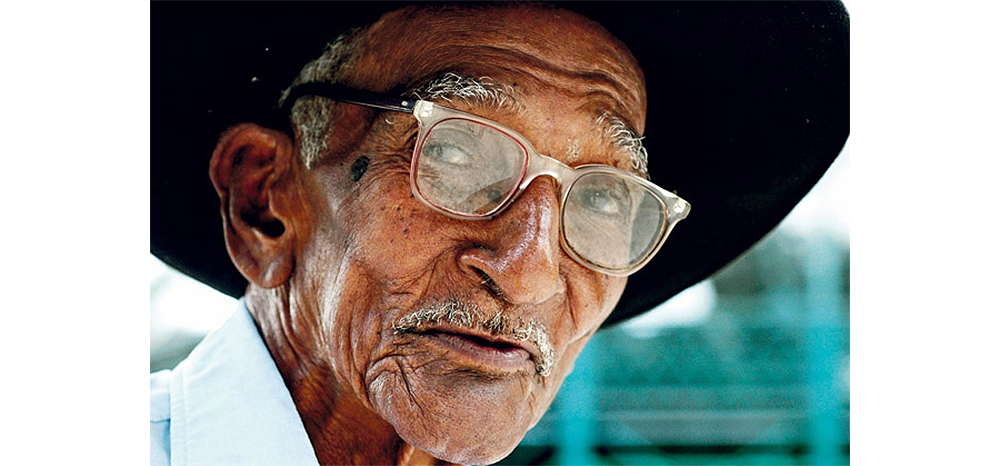 Augusto Gomes Rodrigues, better known as Verequete is a singer and composer of Carimbó. His story is much like the story of many men from the interior of Pará who left everything behind them, leaving their places of origin to try to achieve improvements of life in the state capital. The difference with Verequete is that in his "diaspora", he brought with him various elements of his original culture and reworked into a new context, an urban context, building a cultural identity which comes from a long time ago.
Augusto Gomes Rodrigues, better known as Verequete is a singer and composer of Carimbó. His story is much like the story of many men from the interior of Pará who left everything behind them, leaving their places of origin to try to achieve improvements of life in the state capital. The difference with Verequete is that in his "diaspora", he brought with him various elements of his original culture and reworked into a new context, an urban context, building a cultural identity which comes from a long time ago. Verequete's carimbó, named in honor of Toya Verequete, well-known figure in the terraces of the black mine in the suburbs of Belém, has the mark of authenticity, using traditionnal instruments and respect the black roots of carimbó.
Verequete's carimbó, named in honor of Toya Verequete, well-known figure in the terraces of the black mine in the suburbs of Belém, has the mark of authenticity, using traditionnal instruments and respect the black roots of carimbó.When the rhythm of Pará began to awake interest in the mass media, record companies from the south of the country launched eight LP's about Verequete's authentic carimbó. Verequete was an early popularizer of carimbó in the suburbs of Belém with his band O Uirapuru.
In 2000, Luiz Arnaldo Campos and Rogério Parreira realised "Chama Verequete",
a 18min documentary about Verequete. Don't miss a chance to watch it !
.Part°01.
.Part°02.
---------------------------------------------
.CAMARÃO.
Born on the 23th of June 1940, in Brejo da Madre de Deus, Pernambuco, the accordionist Reginaldo Ferreira Alves became known as Camarão after the singer Jacinto Silva mentionned his red cheeks during a radio show. Master of the instrument, he counts a more than 50 years career dedicated to Xote, Xaxado, Forró and Baião.
 He has learned from his father, the accordionist Antonio Neto, who always took him to parties where he played. In his work on Rádio Difusora de Caruaru, Camarão could have contact with the great names of national music, as Sivuca and Hermeto Pascoal. Later, he improve his technique with one of the greatest Northeastern music icons, Luiz Gonzaga, with whom he recorded the song Garoto do Grotão in 1978. The king of the ballad has also been the producer of the first two albums of Banda do Camarão, the first forró's band of Brazil.
He has learned from his father, the accordionist Antonio Neto, who always took him to parties where he played. In his work on Rádio Difusora de Caruaru, Camarão could have contact with the great names of national music, as Sivuca and Hermeto Pascoal. Later, he improve his technique with one of the greatest Northeastern music icons, Luiz Gonzaga, with whom he recorded the song Garoto do Grotão in 1978. The king of the ballad has also been the producer of the first two albums of Banda do Camarão, the first forró's band of Brazil.Camarão is 'Living Patrimony of Pernambuco', a title granted by the Government of Pernambuco since 2002.
I strongly invite you to have a look to the documentary 'O Milagre de Santa Luzia, uma viagem pelo Brasil que toca sanfona' realized in 2009 by Sergio Roizenblit, and who feature Camarão.
Check the trailer:

